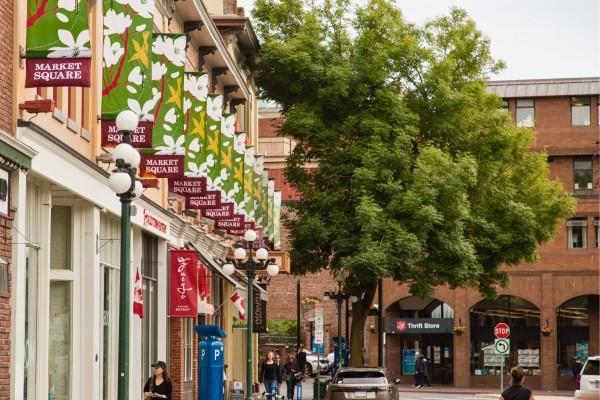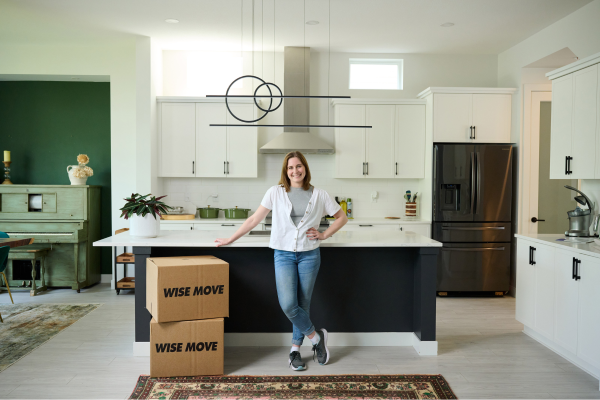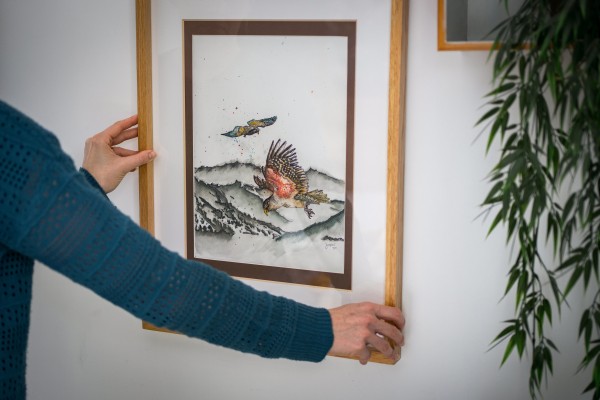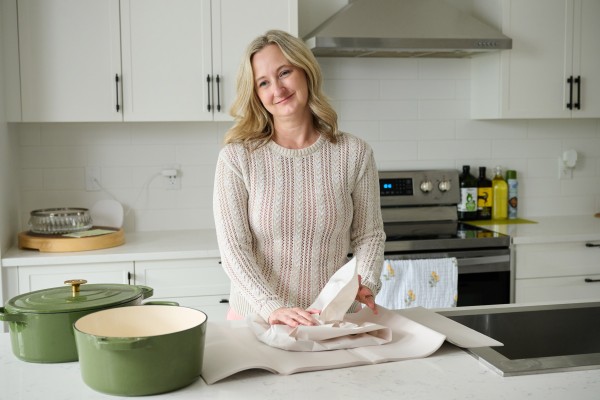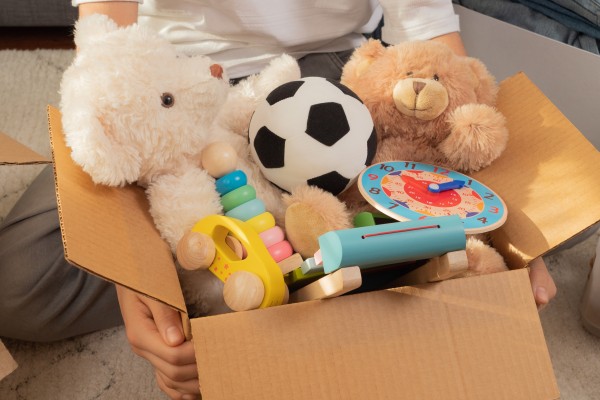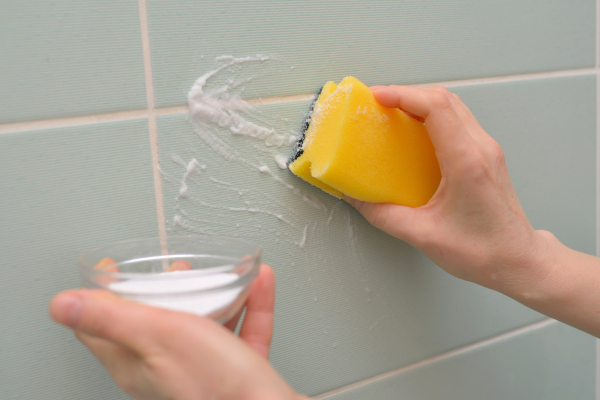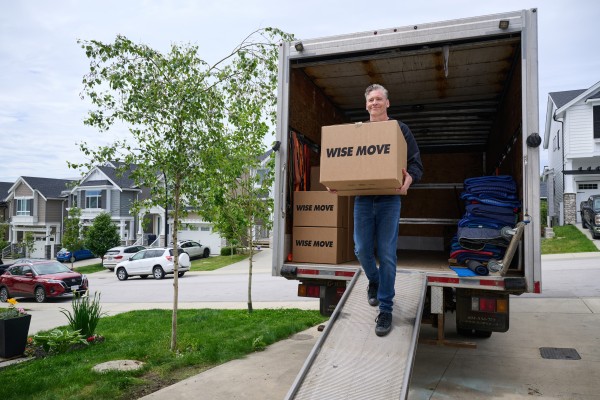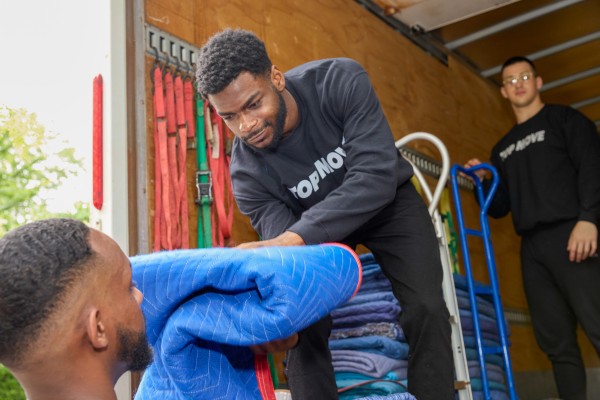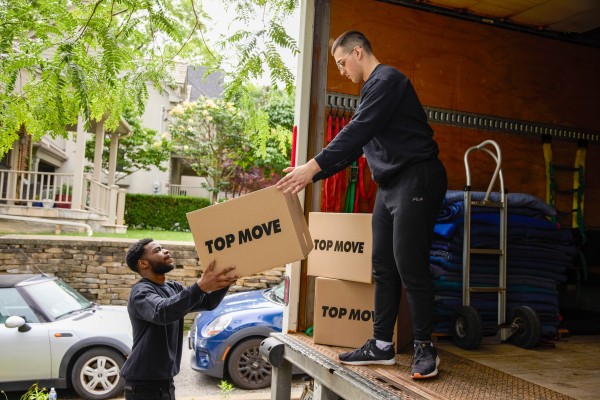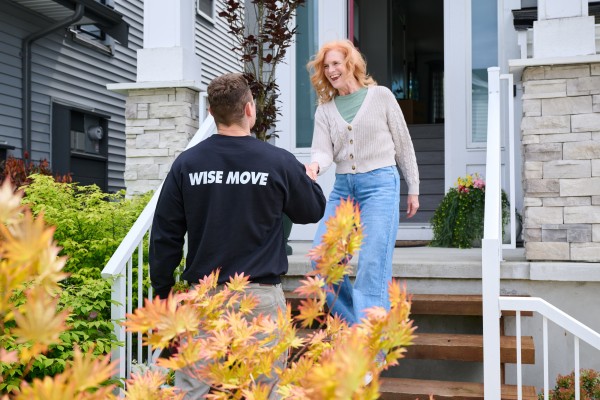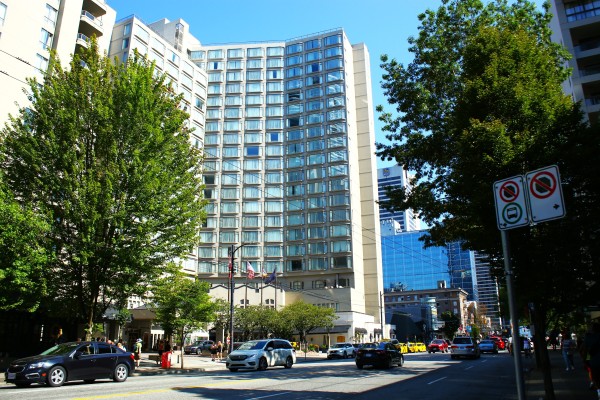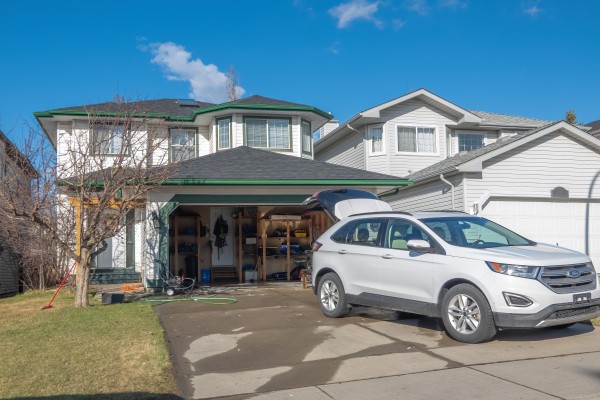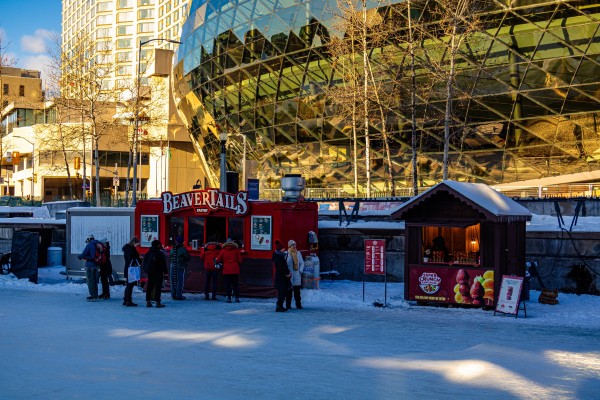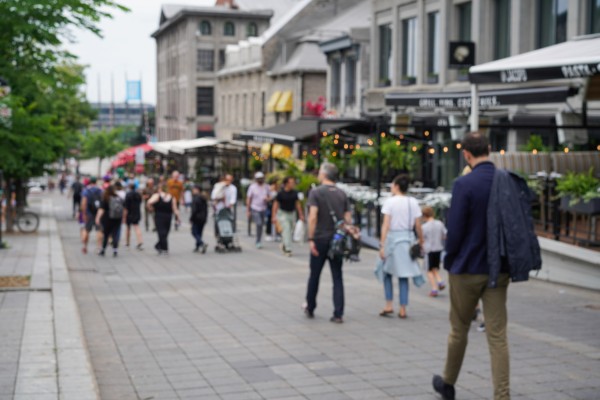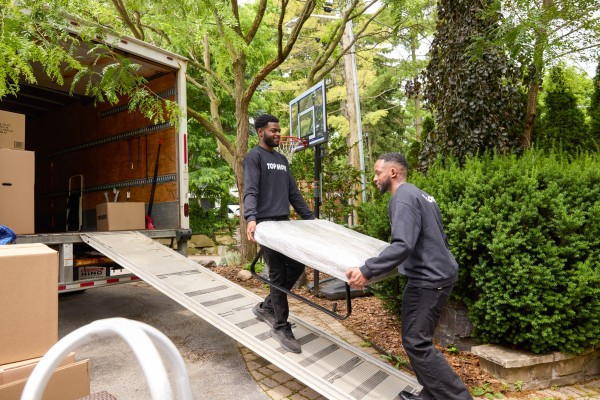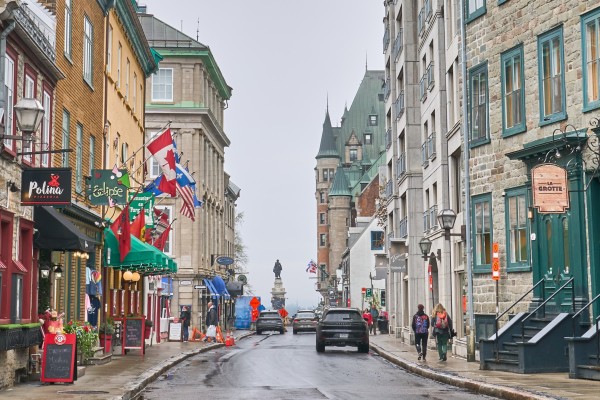Moving checklist and relocation guide in Victoria

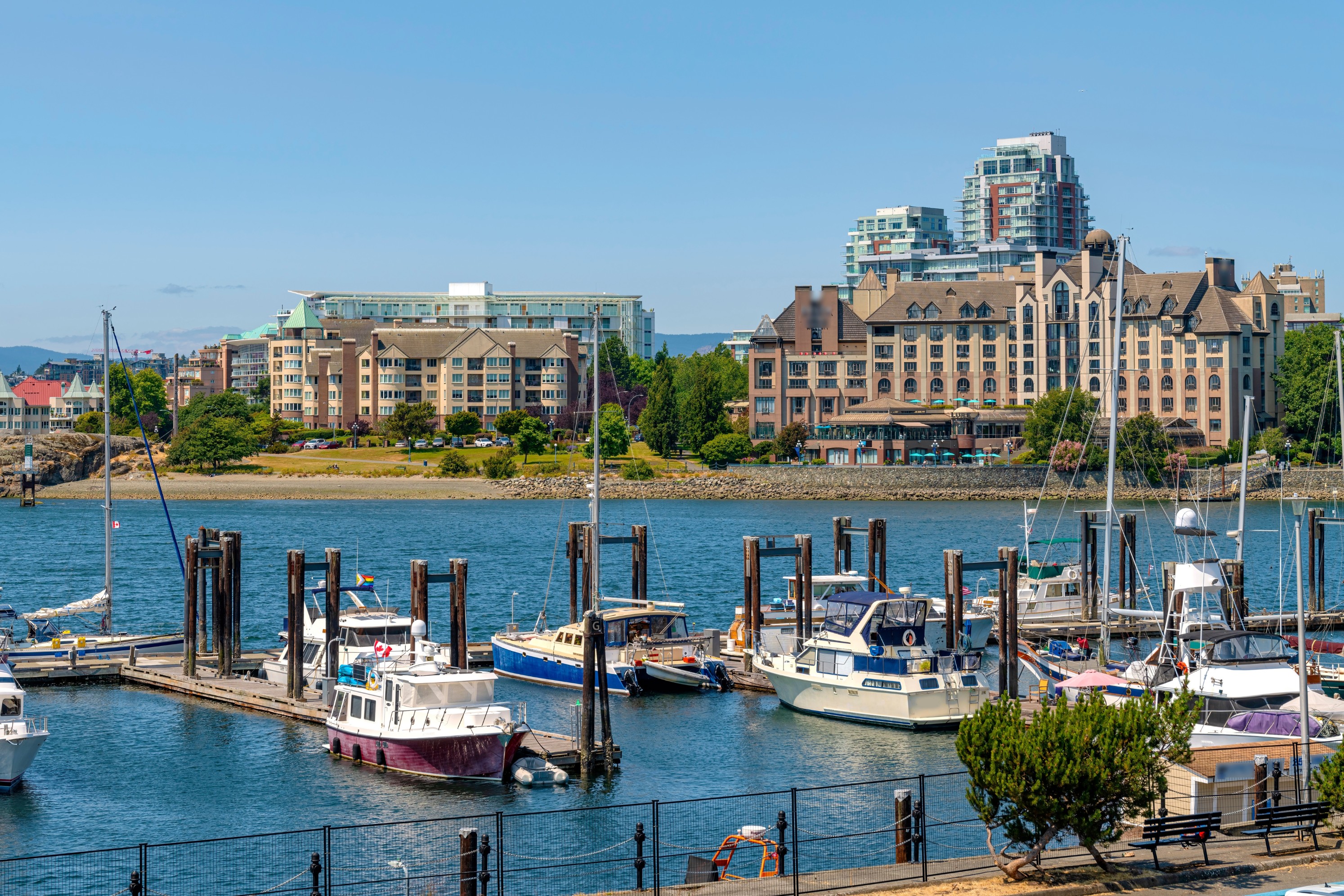
These days, it seems like most of Canada wants to move to Victoria, and for good reason.
Its mild coastal climate has winter temperatures rarely dipping below freezing. If it does snow, it disappears within a day or two. Surrounded by beaches and forest, the city offers the best of both worlds—modern amenities and beautiful neighbourhoods. Victoria is nicknamed “The Garden City” for a reason, but without the traffic jams and hustle of a big metropolis.
Victoria is also a hub for education, tourism, health care, and government work (as the capital of BC). With top-rated universities and thriving summer tourism, there are plenty of opportunities for those looking to build a career, raise a family, study or retire.
If you have your eye on Victoria and are planning a move there, here is a checklist of important steps to take before your move, as well as guidance in familiarising yourself with the city.
Introduction to moving day in Victoria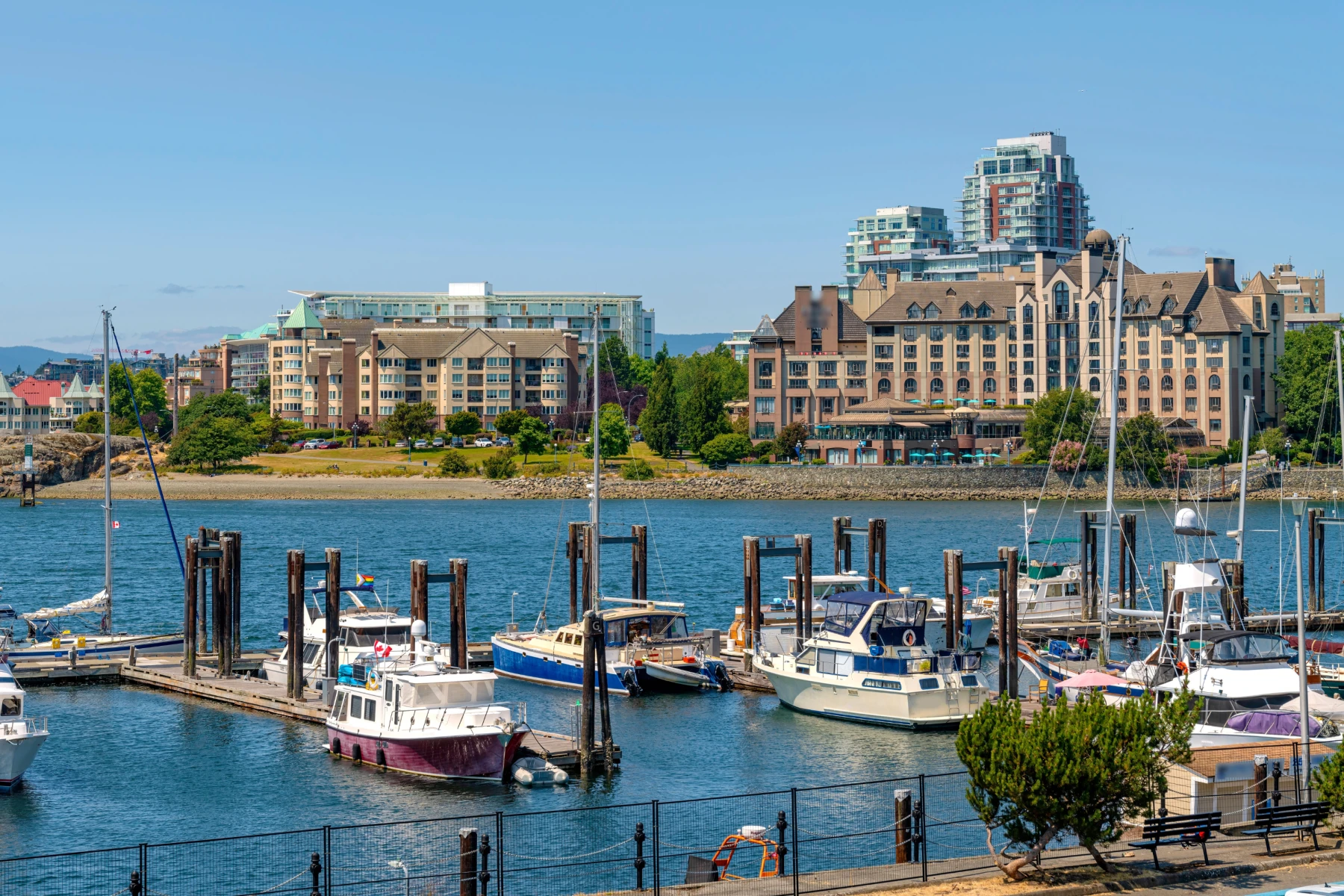
Victoria stands out among Canadian cities for its small-town atmosphere, rich history, stunning natural beauty, and mild climate. With outdoor adventures available year-round and a bustling arts scene, it’s no wonder so many visitors fall in love with the city and end up moving there.
Living on an island has both benefits and challenges
In Victoria, there are beaches 10 minutes away in every direction. That's a big draw for many people.
That said, many locals find it challenging to be separated from the mainland by a 1.5-hour ferry ride. These rides can cost at least CA$75 each way if you want to bring a vehicle. Delays, cancellations, and high ticket prices are all part of the experience, making travel a bit more complicated at times.
While the Victoria airport does offer some international flights, Islanders often have to travel to Vancouver International Airport for most flights. Add in a costly, time-consuming ferry plus an hour or more of driving, and it can get somewhat tiresome for those who fly often.
Island living also affects the cost of essentials. Since most goods (including groceries) are transported by ferry, prices tend to be higher than in other parts of the province. Combine that with higher-than-average housing costs, and Victoria’s overall cost of living can be steep compared to many other Canadian cities. All the more reason to shop local when you can.
Still, for those who call Victoria home, the perks far outweigh the inconveniences.
Locals value the slower pace, the strong sense of community, and the natural beauty that surrounds them every day.
Smart tips for moving day success
A stress-free move starts with rock-solid preparation. There are so many details to keep track of, and being (and staying) organised way ahead of time can save you a lot of hassle. There are certain things you can do to maintain efficiency, safety and communication, so that you can keep your head straight and avoid last-minute surprises.
-
Book your moving company early to lock in your preferred moving date.
-
Map out your route in advance, taking into account traffic patterns, construction detours, and local parking rules. Navigation apps like Google Maps or Waze are great for real-time updates.
-
A few days before the move, do a walkthrough of both your current and future homes. Take note of tight corners, narrow staircases, or tricky spots that could slow things down. Flagging these for your movers helps them plan and avoid delays.
-
Update your address, transfer utilities, and notify any service providers well in advance.
-
Make a detailed inventory of everything you’re moving. This will help you estimate the right truck size, keep track of your items, and make unpacking way easier on the other end. You can also downsize while you are at it!
What you need to know about moving to or within Victoria
Housing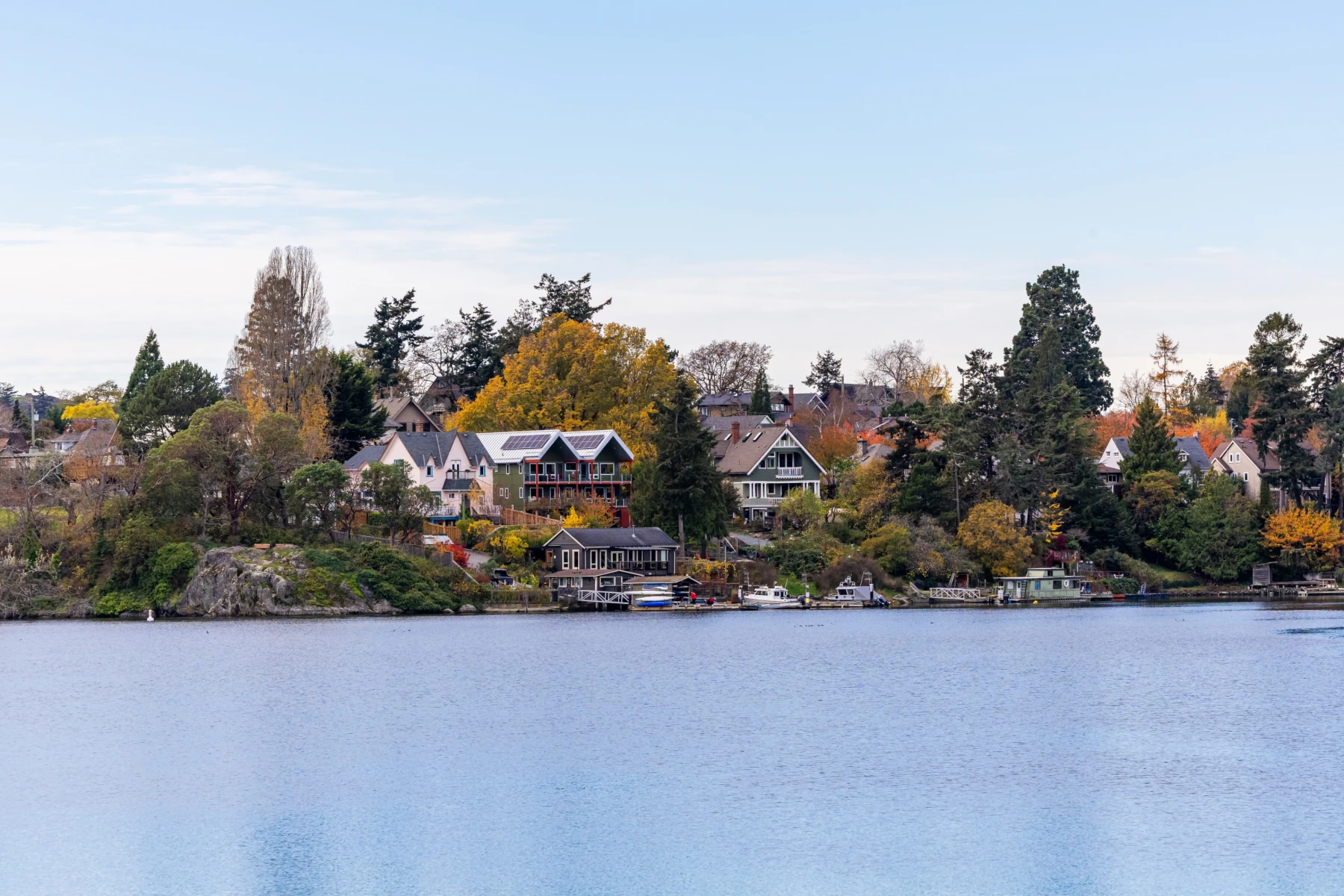
Just like with every popular city, finding housing in Victoria can be challenging. As a university city, affordable housing gets snatched up very quickly, especially in August and September. On the flipside, if you are looking for rentals at the end of the school year (April and May), you’ll have more luck.
Staying right on top of newer listings is crucial, and be ready to act quickly once you find something suitable.
Some Victoria neighbourhoods are more affordable than others. If you’re looking to rent or buy a home, here are areas that are known for being less expensive:
-
Esquimalt
-
Vic West
-
Langford
-
Colwood
-
Saanich West
-
View Royal
-
Highlands
-
Sidney (technically a different city, but close enough to commute, also more affordable than central Victoria, especially for condos)
-
Mill Bay (requires commuting via the Malahat)
-
Brentwood Bay
Transportation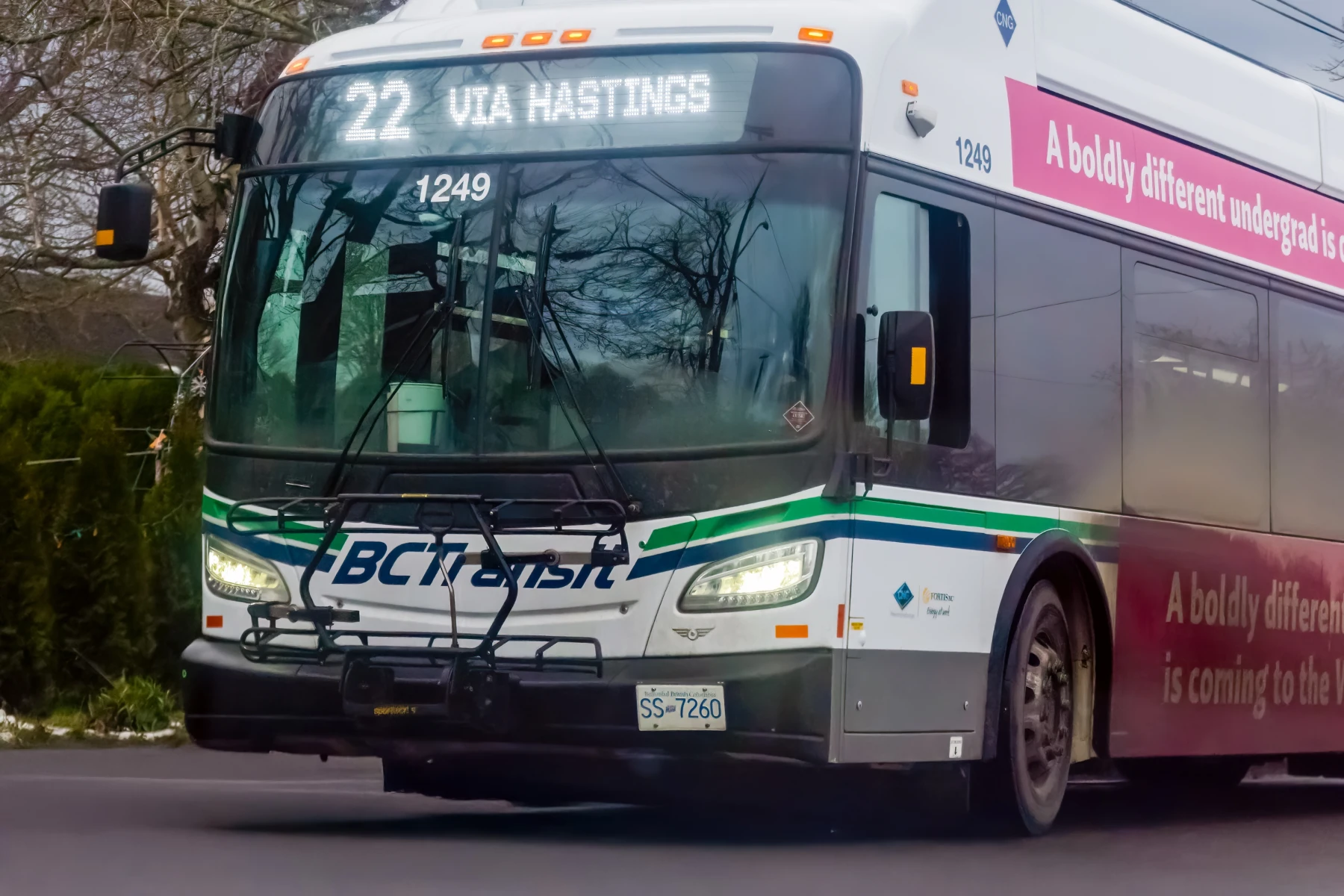
Public transport in Victoria
- Commuting in BC is relatively easy and flexible, thanks to the city’s small size and compact layout. BC Transit operates a dependable bus system that serves the city and surrounding areas, like Saanich, Esquimalt, Langford, and Sidney.
- Buses run frequently in central neighbourhoods, though service can be less frequent in outlying suburbs or during evenings and weekends. Victoria shuts down early–bus routes stop running at midnight or earlier.
- Monthly passes are affordable, and students at UVic and Camosun College, as well as senior citizens, benefit from discounted U-Passes.
Getting around by car in Victoria
Traffic in Victoria is mild compared to larger cities, with occasional slowdowns on busy routes, such as the Malahat or McKenzie Interchange during rush hour. Many suburban households own private vehicles, especially in areas where public transit options are limited.
Cycling and walking in Victoria
Victoria is known as one of the most bike-friendly cities in Canada.
- The city has made significant investments in protected bike lanes and multi-use trails, such as the Galloping Goose and Lochside Trails, which make cycling a popular and safe choice for commuting and recreation.
- Many residents use bikes as a primary or secondary mode of transportation, more so in warmer months.
- Some enthusiasts commute via bicycle year-round, and they are well-equipped with good rain gear and waterproof bike bags.
Victoria is extremely walkable, especially in its central neighbourhoods such as downtown, James Bay, Fairfield, and Fernwood.
Heading to the mainland
BC Ferries provides regular service between Victoria (Swartz Bay Terminal, just beyond Sydney) and Vancouver. The Victoria International Airport also offers both domestic and limited international flights.
Finding the right moving company in Victoria
Choosing the right moving company can make all the difference in how smoothly your move goes, so it’s worth taking the time to do your research. Start by thinking about what matters most to you, whether that’s price, timing, specialised services, or reputation. Online reviews are a great place to start, offering real insight into the experiences of other customers.
Once you've created your moving inventory, you’ll have a better idea of what size truck or level of service you need. Compare insurance options between companies so you're properly covered without overpaying. While a low quote can be tempting, it’s often wise to book a company that has great reviews and a reputation for being reliable and professional, even if it costs a little more.
If you’re feeling overwhelmed by the options, Wise Move can help you find and book trusted movers that match your specific needs and budget, all in one place.
Victoria's moving house checklist
10+ Weeks before your move
-
Get to know the city: Whether you're new to Victoria or relocating to a different part of the city, spend some time in the neighbourhoods you're considering. Think about your lifestyle, commute, and daily needs. Is there a park nearby? Knowing Victoria, there probably are several. How close are the grocery stores, schools, or cafés? Getting a feel for your future surroundings will help you choose the right place to call home.
-
Create a moving budget: Factor into your budget the costs for movers, packing materials, fuel, utility connections, and any unexpected expenses.
-
Book your moving company early: This is especially important if you’re moving during peak seasons in August or September (when students move or return to Victoria). If you’ll need a storage unit, start researching options now.
-
Declutter (and be ruthless): The fewer items you move, the easier and cheaper your move will be. Sell, donate, or recycle anything you don’t truly need. Victoria has excellent charitable thrift stores, clothing drives and pickups, women’s centres, a refugee centre, and free piles at the municipal dumps. Donate to the organisations to avoid contributing to the landfill more than necessary.
-
Plan out your packing process: As you sort through your belongings, plan how you'll go about getting everything packed. Decide what can be packed early and gather supplies. Reuse materials like blankets and towels to protect fragile items, and invest in high-quality boxes for valuable or heavy items.
-
If you are renting, give your notice on time: In Victoria, if you have a month-to-month or periodic tenancy, you'll need to give your landlord at least one full month's notice before the end of your tenancy.
6+ Weeks before your move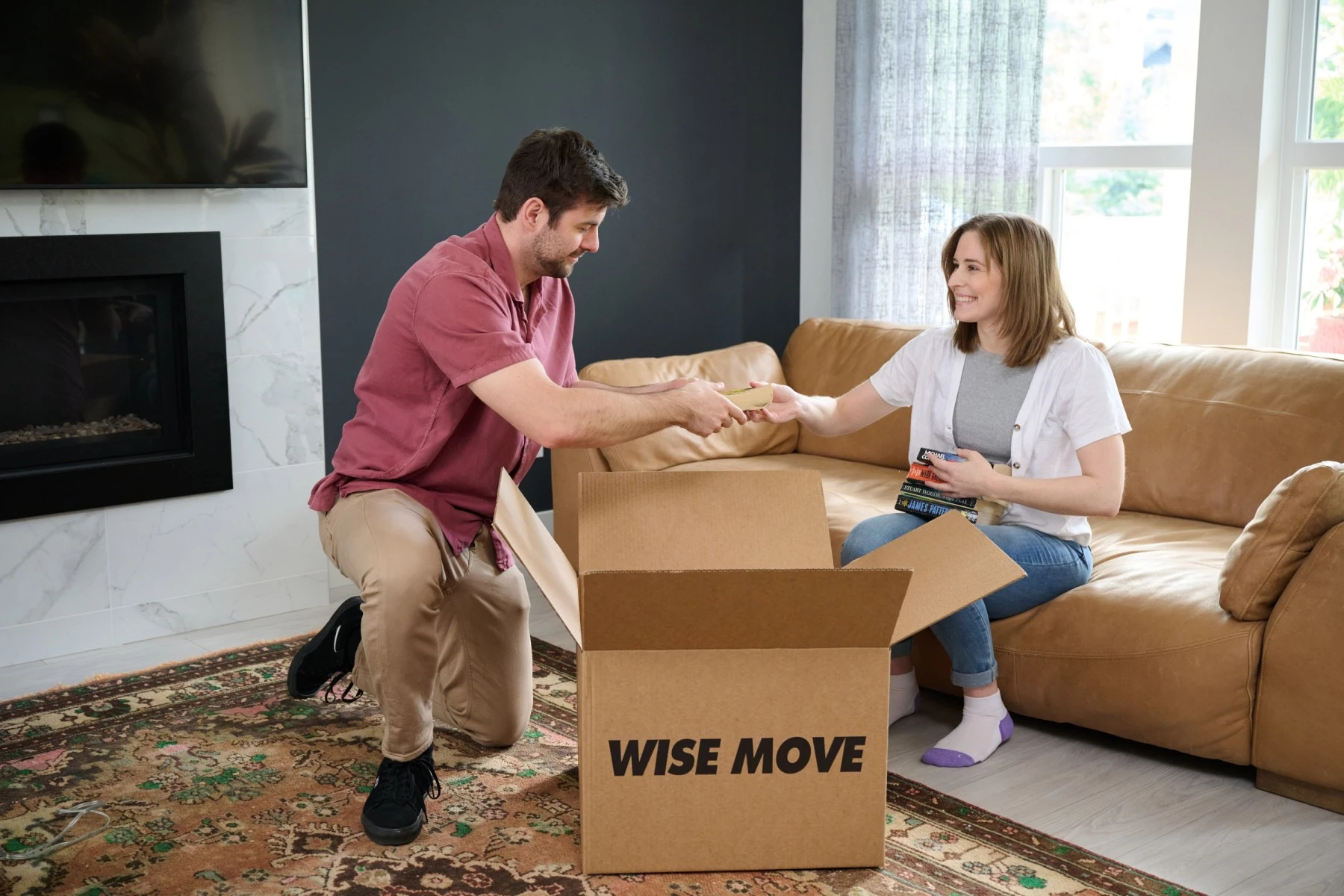
-
Gather packing materials: Start collecting packing materials if you don't already have some. Reuse boxes when possible, or source sturdy produce boxes from local grocery stores. Newspapers and towels can replace bubble wrap for a more eco-friendly move. Blankets are perfect for protecting furniture, appliances, large electronics, mirrors, and framed artwork.
-
Start packing: Begin packing non-essential items, such as books, off-season clothing, decorations, and kitchen tools you rarely use. Take extra care with fragile items by wrapping them securely and labelling the boxes clearly.
-
Update your new details: Contact Canada Post, your bank, subscription and your utility providers to let them know your new address. If your new home requires a parking permit for moving day, apply for it now to avoid last-minute stress.
4+ Weeks before your move
-
Communicate with your moving team: Check in with your movers to confirm the moving date and details, so that everyone is on the same page.
-
Organise a move-out clean: If you’re planning to use a professional cleaning service for your current place, now is a good time to book it. A sparkling-clean home increases your chances of getting your full damage deposit back.
-
Arrange care for pets or small children: They’ll be safer and less stressed if they’re not in the middle of the action.
-
Make your new home move-in-ready: Visit your new home (if possible) to check for any repairs or cleaning tasks before you arrive.
2+ Weeks before your move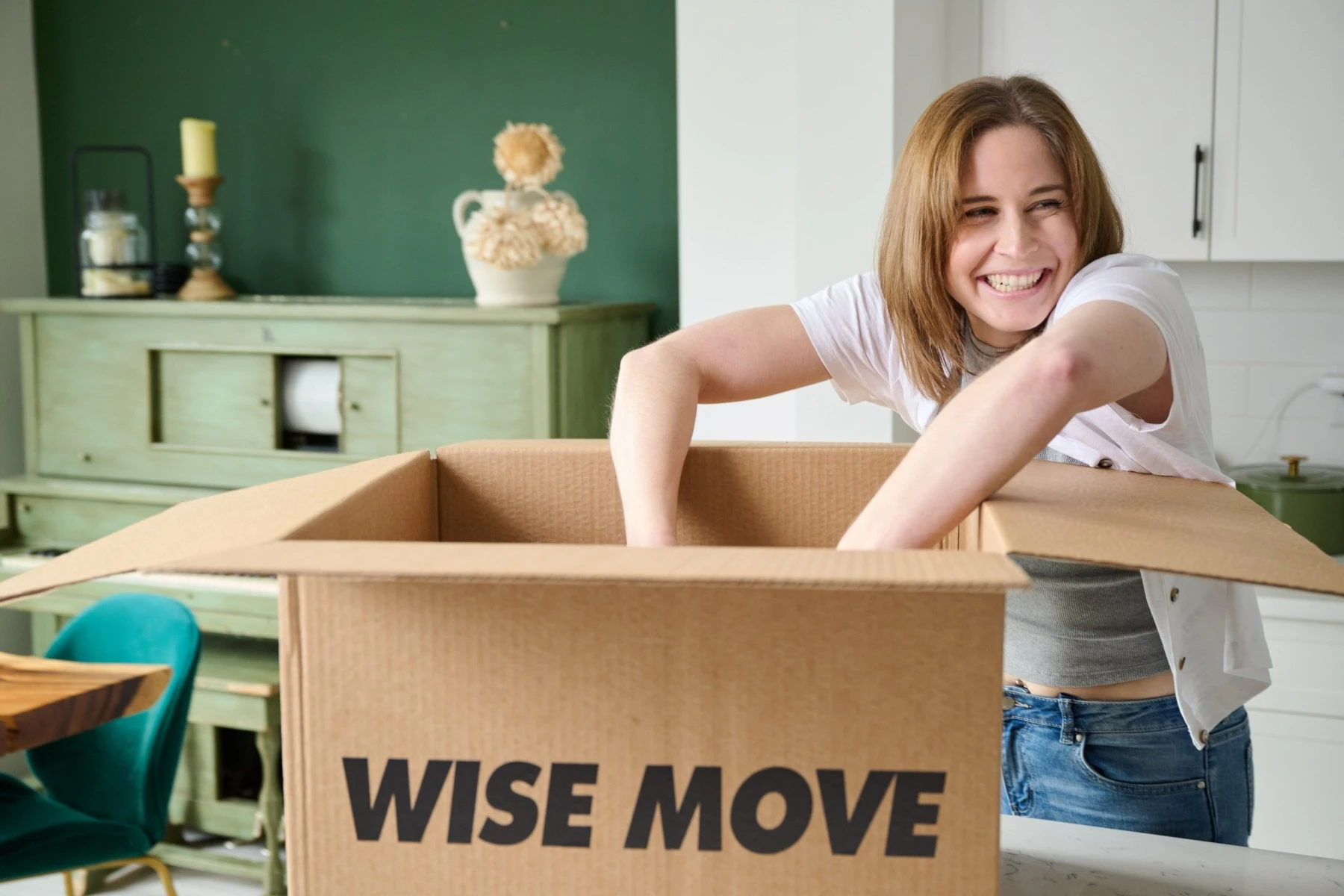
-
Pack smart: Keep packing steadily so you're not scrambling at the last minute. Continue organising as you go—label your boxes clearly by room to simplify unpacking.
-
Stay on top of admin: Update your personal information, including your driver’s license, vehicle registration, and voter registration. The earlier this is sorted, the better.
1+ Weeks before your move
-
Discuss your moving plan: Share a clear game plan with your movers, including any tricky access points or special instructions.
-
Nail the move-out clean: Give your current home a final, thorough clean. A little extra effort now could save you money later. Finish packing everything except for daily essentials.
-
Lighten your load: Stop watering large houseplants to lighten their weight for the move.
-
Do some anticipatory meal prep: Prep a few easy, freezer-friendly meals for your first few days in the new place. Soups, stews, or casseroles are great ways to use up perishables (one less thing to move).
-
Get organised for moving day: Don’t forget to pack a 'moving day essentials' kit with toiletries, medications, phone chargers, snacks, water, and important documents.
Moving day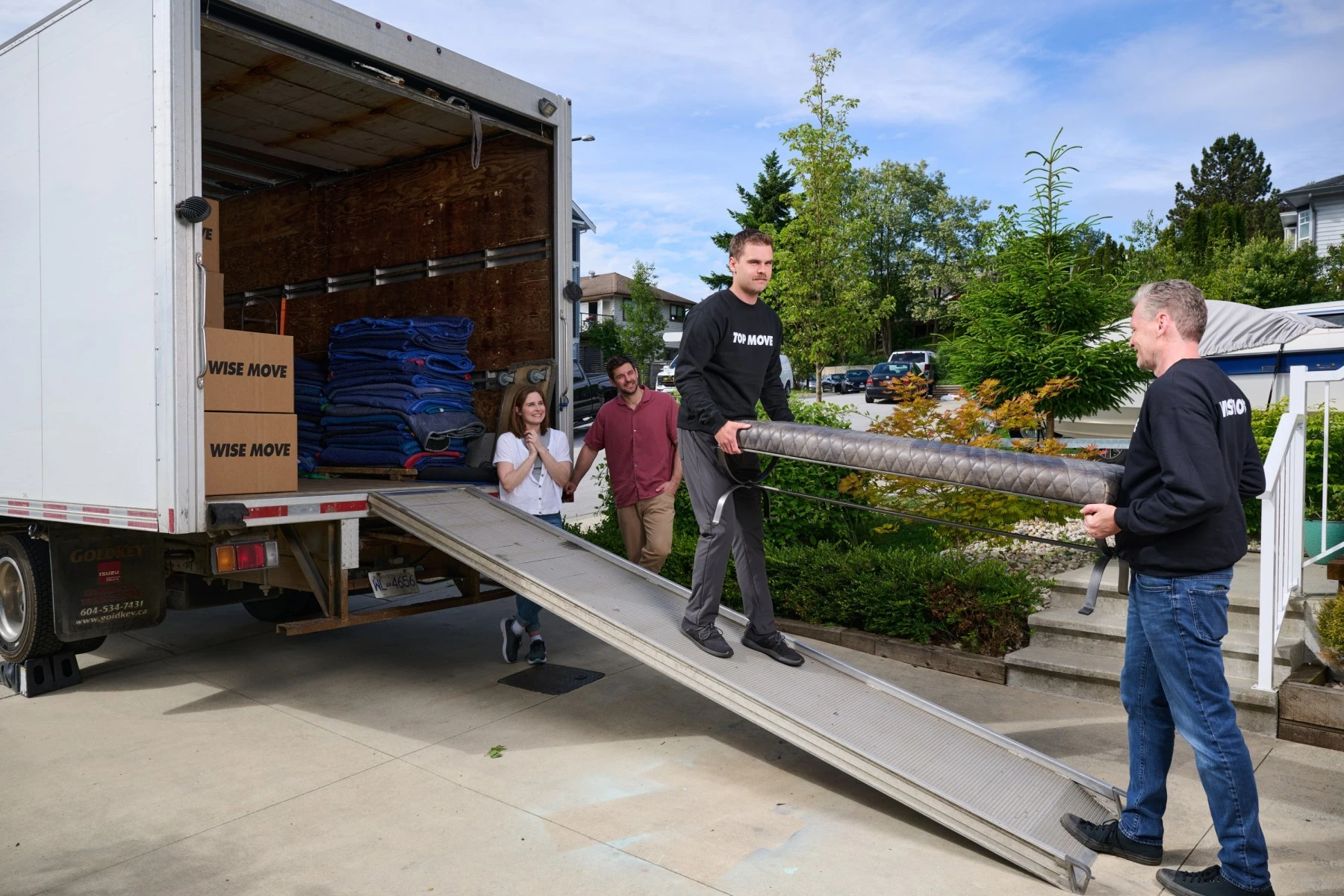
-
Think ahead: If necessary, reserve a parking spot for the moving truck to avoid delays.
-
Take a step back and let your movers take over: Once movers arrive, let them take the lead. Give them space and trust their process. They are the experts, and moving is what they do best.
-
One last look: Do a final walkthrough of your old home before locking up to check that nothing has been forgotten.
-
Prioritise unpacking your new home: Once you arrive at your new place, the real work begins—start by getting your essentials unpacked so you can settle in comfortably.
After the move
-
Practice sensible unpacking: Begin unpacking the most important rooms first, like the kitchen, bathroom, and bedroom. Organise boxes and furniture by room so everything’s easy to find later.
-
Explore your surroundings: Take the time to enjoy your new neighbourhood. Go for a walk, grab a coffee, and locate your nearest grocery store, library, or community centre. It’s the beginning of a new chapter, so make the most of it.
How much will moving day in Victoria cost?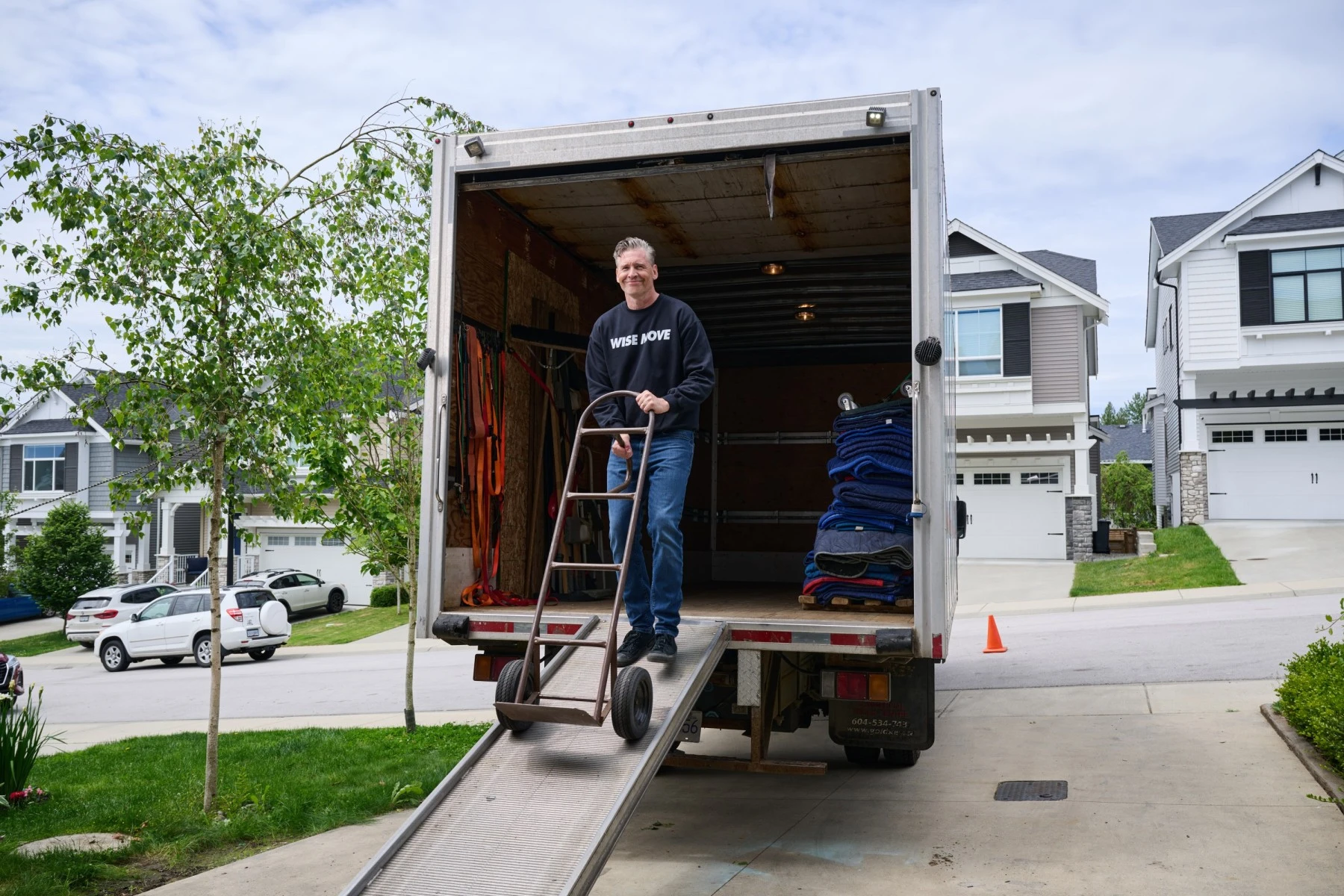
The cost of moving in Victoria depends on the size of your home and the distance of the move. It’s a good idea to get quotes from multiple companies to compare rates and services. Platforms like Wise Move can help by collecting quotes for you, saving time and helping you find affordable, reliable movers with less hassle.
-
If you're relocating to a one-bedroom apartment, you can expect to pay anywhere from CA$400 to CA$800.
-
For a larger move, like a four-bedroom house, costs can range from CA$1,700 to CA$3,000 or more.
-
If you have oversized or delicate items such as pianos, antique furniture, or large artwork, most moving companies will charge additional fees.
-
If you're buying a home, don’t forget to budget for extra expenses that come with it, like legal fees, home inspections, insurance, and land transfer taxes.
-
Renters should plan for a damage deposit, equal to one month’s rent.
-
Other common costs include utility setup fees, packing supplies and cleaning services.
-
In certain neighbourhoods, especially closer to downtown, parking permits are necessary for moving trucks, so it’s worth checking in advance.
Should you hire movers or do it all yourself?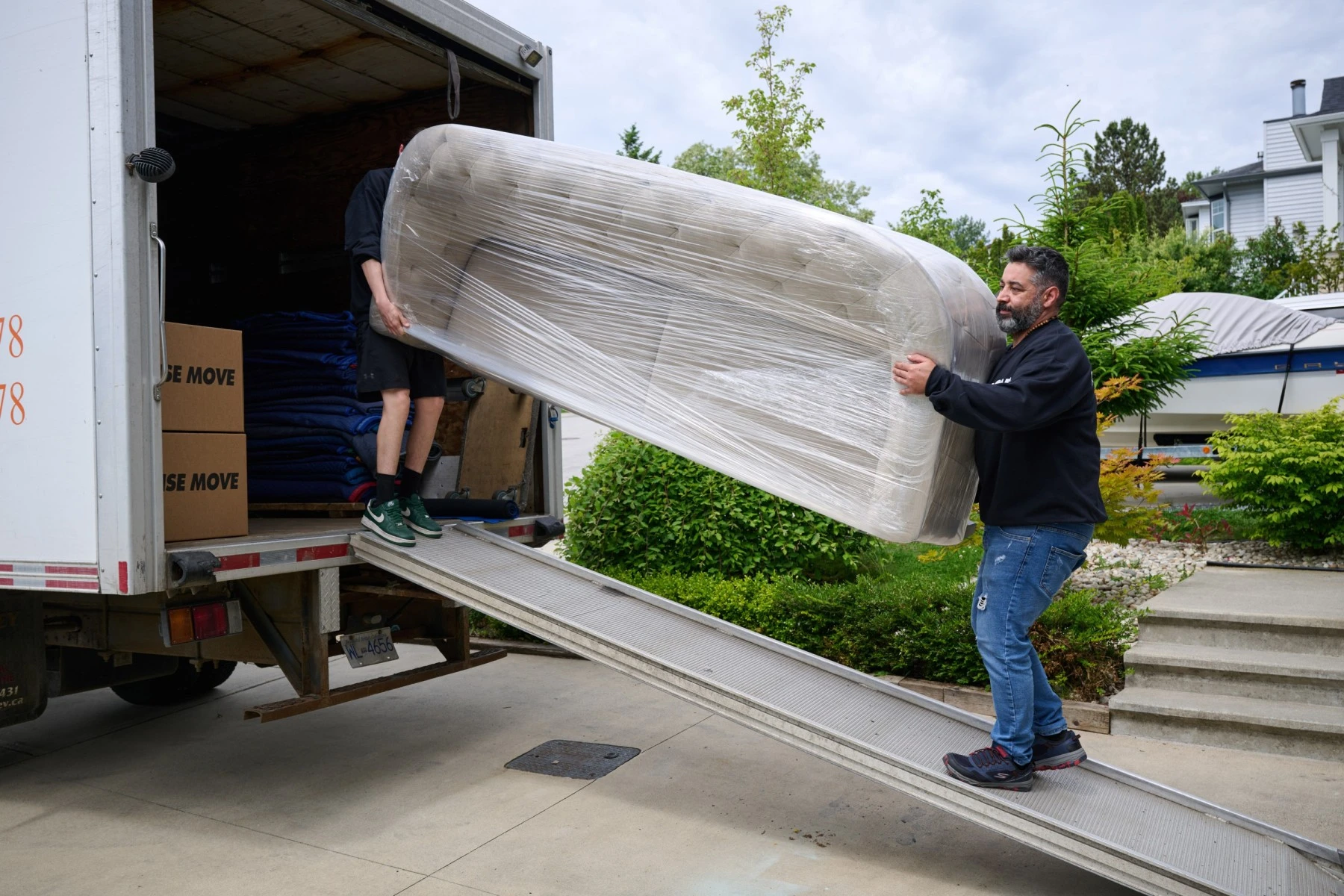
One of the biggest decisions you'll make when planning a move is whether to hire professional movers or handle everything yourself. Your choice will depend on your budget, schedule, and how much heavy lifting you can handle.
Hiring professional movers
Pros
-
Fast and efficient: Professional movers know how to pack, load, and unload quickly. They’ve got strategy and muscle, which helps get the job done quickly.
-
Less stress: Let someone else handle the heavy stuff, including fragile or awkward items. You can focus on organising and settling into your new space.
-
Insurance coverage: Most moving companies come with basic insurance coverage, giving you peace of mind that your belongings are protected during transit.
-
Skilled handling: From antiques to large furniture, professional movers bring the tools and experience to move your items safely.
-
Fewer injury risks: No straining your back or smashing your fingers. Let the movers do all of the awkward or challenging work.
Cons
-
Higher cost: Hiring movers comes with a price tag.
-
Possible extra fees: Think tight stairwells in heritage homes, downtown parking challenges, or last-minute bookings. All of these things can raise the final price.
DIY (Doing It Yourself) move
Pros
-
Saves money: If you’re on a tight budget, DIY is usually the cheapest way to go, especially if you’re only moving across town or have few belongings to move.
-
More control: You decide how to pack, what to move first, and when to take breaks.
-
Flexible timing: Move at your own pace. You can even spread it out over a few days if needed.
-
Social fix: Ask friends or family to help, order pizza, and turn the moving day into a team event. Group effort boosts morale.
Cons
- Time-consuming: Packing, lifting, and organising everything yourself can take longer than you expect.
- Physical work: Be ready for a workout. Without the right gear, moving can be tiring or even risky. (On the upside, it could count as your gym session!)
- Risk of damage: Without proper tools or experience, items (or walls) can get damaged.
- Weather factor: Victoria’s rainy winter climate can be tricky if you're moving without help. Wet boxes, slippery stairs, and soggy couches are no fun to deal with.
So what’s the verdict? If you’re short on time, not into heavy lifting, or have fragile items to move, hiring professionals might be worth the investment. Wise Move can help you quickly compare quotes from trusted local movers, so you can get moving without the stress.
Room-by-room packing tips for your move in Victoria
Make packing less overwhelming by tackling it one room at a time. A little planning goes a long way, so start early, label as you go, and use this opportunity to let go of things you don’t actually use.
Outdoor areas (yard, shed, storage spaces)
Tip: If you’re moving before winter, pack this area early. Cold, damp weather and limited daylight hours make it harder.
-
Tools: Sort through your gear and donate tools you’ve got multiples of. Some recycling depots have a “free pile” for old tools, and Victoria’s locals are also big on sustainability. Use sturdy boxes for smaller tools and wrap larger ones, like chainsaws or trimmers, in old blankets.
-
Furniture: Disassemble bulky items and protect them with moving blankets or pads. Keep all hardware in clearly labelled bags.
-
Plants and pots: Move large planters separately. Place smaller plants in boxes with fabric or towels for cushioning. Don’t water big plants the week before the move, as this will keep them lighter.
Guest room
-
Bedding: Pack pillows, sheets, and blankets in labelled bins or bags for easy set-up.
-
Furniture: Take apart what you can, and tape labelled hardware bags directly to each piece, or store all hardware in one box.
Home Office
Eco tip: Use shredded paper as packing filler for fragile items.
-
Paperwork: Recycle or shred what you don’t need. Place important files in a labelled file box and keep it with you on moving day.
-
Electronics: If you don’t have original boxes, wrap computers and monitors in towels or soft fabric.
-
Furniture and supplies: Disassemble desks if needed and label each part. Use small boxes for cords, pens, and accessories. Wrap lamps and fragile items carefully.
Living and dining room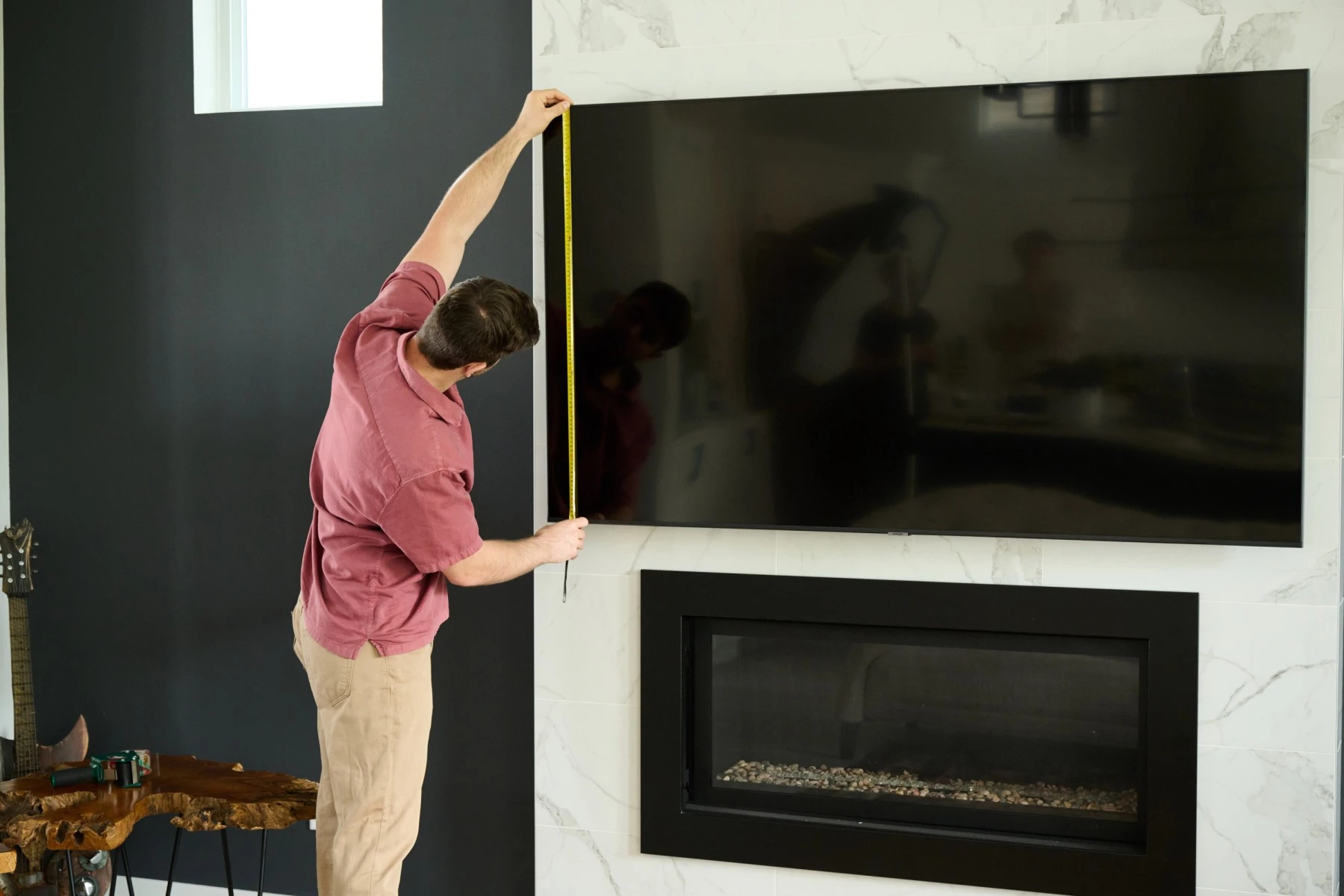
-
Electronics: Original packaging is ideal for TVs and consoles. Otherwise, wrap them securely in blankets.
-
Furniture: Use moving blankets to protect furniture. Disassemble where possible—for example, the legs from your dining table—to make it easier to move through tight spaces.
-
Books and decor: Pack books in small boxes or suitcases (they tend to get heavy fast). Wrap decorative items in fabric or paper for protection.
-
Soft furnishings: Load up cushions, rugs, and throws into large bins or bags. Avoid overpacking to prevent compacting and damage.
Main bedroom
-
Clothing: Wardrobe boxes are great for packing hanging clothes. Fold and pack the rest into suitcases or bins. Always label them so you know which clothing items are inside.
-
Bedding: Comforters, pillows, and sheets can be packed in large, labelled boxes for quick access. You’ll want to set up your bed first at your new place.
-
Furniture: Disassemble your bed frames and store hardware in labelled bags.
-
Personal items: Keep jewellery and valuables in your essentials bag. Use fabric to wrap photo frames or keepsakes for extra padding.
Bathroom
-
Declutter: Toss expired meds and used-up or old products. Donate sealed items to shelters.
-
Toiletries: Use zippered or leak-proof bags for anything that might spill. A travel bag is perfect for small jars and containers.
-
Fragiles: Wrap perfume bottles, mirrors, and other breakables in towels or washcloths to protect them during the move.
Kitchen
-
Declutter: Get rid of expired or unwanted pantry items. Donate extras and pack the rest in sturdy containers.
-
Dishes and glassware: Wrap each piece with packing paper or cloth. Stack carefully and use dividers for glasses. It’s also a great time to trim down your dishware collection.
-
Food: Plan meals to use up perishables. Save a few essentials for the last week before moving. Pack canned and dry foods in small boxes.
-
Appliances and utensils: Wrap small appliances in towels, and use small boxes for cutlery and kitchen tools. Donate any extras you don’t use.
Leave your place spotless and get your damage deposit back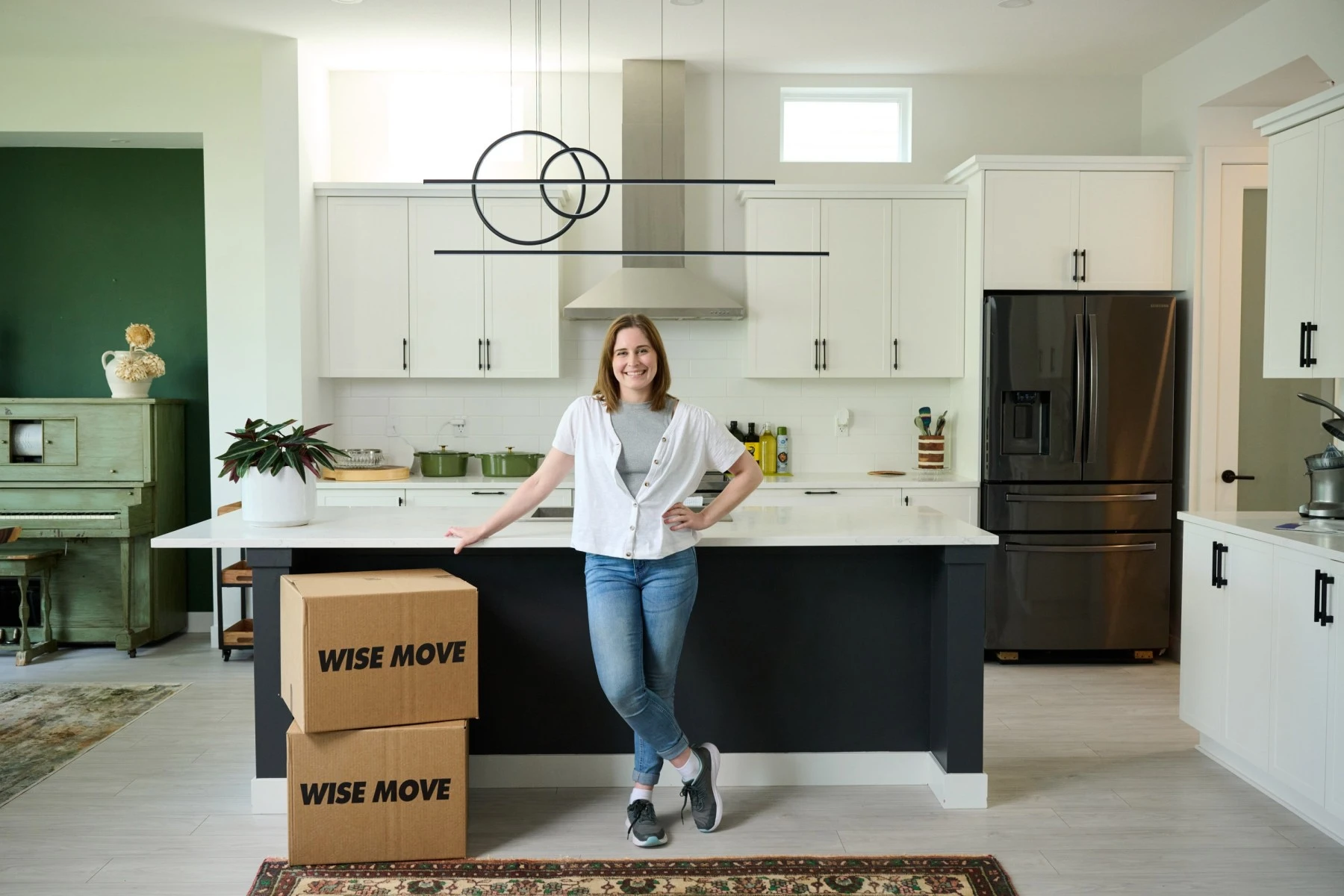
Once the boxes are packed and the moving truck pulls away, your last big push is to clean your old home from top to bottom. If you’re a renter, this step is necessary to get your full damage deposit back.
Start at the top and work your way down
Dust settles downward, so begin with the ceiling corners, fans, vents, and light fixtures. Then move on to walls and windows. For a streak-free finish, wash windows with warm soapy water and follow up with a vinegar-water spray and a wipe down. Use warm water and a mild soap (like castile) to wipe down the walls, giving extra attention to high-touch areas like light switches and door frames.
Tackle the kitchen first
The kitchen usually takes the most effort, so it’s nice to get it out of the way immediately.
- Clean every surface—from countertops, cabinets (inside and out) and sinks to your appliances.
-
For tough grease, mix baking soda and vinegar into a paste to scrub it away.
-
Don’t skip under and behind the stove and fridge.
-
Remember, you are in a very humid rainforest. Check under the sink for mould, and if you find any, scrub it with dish soap, spray with hydrogen peroxide, and dry completely (a small space heater helps to speed the drying process).
Make your bathroom shine
-
Scrub the toilet, tub, tiles, and sink.
-
Use a toothbrush with baking soda and vinegar to deep clean grout.
-
Wipe mirrors, clean counters, and polish the fixtures.
-
Run the bathroom fan to remove any lingering moisture and freshen the air.
Empty the trash before you mop
It’s easy to forget the garbage during the chaos of moving. Take it out before the final floor cleaning so you’re not dragging dirty bags through freshly cleaned rooms.
Give your floors some extra attention
-
Hard floors: Vacuum first, especially around baseboards and corners. Then mop with hot, soapy water. Rinse with clean water for a streak-free shine.
-
Carpets: Check for stains or odours. Rent a steam cleaner or hire a professional if needed. It’s a small cost that can make a big impact, while showing your landlord you went the extra mile.
Do a final walkthrough
Once everything’s clean and dry, slip off your shoes and do one last check of every room. Look closely at walls, corners, and baseboards. It never hurts to snap a few photos of each space, just in case you need proof later.
What does storage cost in Victoria?
There are plenty of reasons you might need extra storage in Victoria. You could be downsizing into a smaller home or condo. You may be waiting for your renovations to wrap up. Or you need some extra space to store your seasonal gear or heirlooms.
Storage units offer a convenient and flexible solution with many options to fit your needs. You can choose to go big or small, short or long-term storage and even add extra features like climate control, drive-up access, and 24/7 availability.
Storage prices in Victoria
Storage rates in Victoria will vary depending on size, location, and features. Facilities closer to downtown or with added amenities usually cost more.
-
Medium unit (around 3 m x 3 m): CA$160–CA$180 per month
-
Large unit (around 3 m x 6 m or larger): Starts at about CA$250 per month, with higher rates for climate-controlled or high-security units
Insurance is normally available through the facility, but coverage may be limited. Check with your own provider for more comprehensive protection.
Alternative storage options in Victoria
View this post on Instagram
If you’re short on time or space, mobile storage might be a better fit.
- In Victoria, companies like BigSteelBox or PODS will drop off a container at your home. You load it at your own pace, and they take it away to a secure facility. It’s a great option for people juggling a move, renovation, or transition period.
- Another alternative, especially if you’re on a rural or spacious property, is to buy a shipping container for on-site use. This can be handy for storing tools, outdoor gear, or furniture while working on your home.
Protecting your belongings in storage
- Most storage providers in Victoria include basic insurance, but it’s usually minimal. If you’re storing high-value items like antiques, art, electronics, or anything irreplaceable, it’s worth exploring better coverage options.
- For small, valuable items like documents, jewellery, or family keepsakes, a bank safety deposit box may be the safer option.
Need a hand with moving and storage?
If you're splitting your belongings between your new home and a storage unit, extra trips can add up quickly. Use booking tools like Wise Move to make it easier to compare local movers and get quotes for more complex or multi-stop moves. Say goodbye to second-guessing!
How to handle unique moving situations
Not all moves are created equal, especially when you’re relocating with pets, children, or elderly family members. These situations need a bit of extra planning, but with the right approach, you can reduce stress and keep everyone feeling supported.
Moving with pets
Big changes and lots of action at home can make pets anxious. They may sense something’s up and worry about being left behind. The last thing you want is an anxious pet swarming around your feet as you are going back and forth with heavy boxes. The solution is to keep your pet’s routine as normal as possible.
Pack a dedicated pet kit that includes:
-
Food and water
-
A comfy blanket or bed
-
A secure carrier or crate
-
Favorite toys
-
Any medications or vet records
-
Favourite treats to help soothe nerves
For long-distance moves or moving with multiple animals, a professional pet transport service can offer peace of mind, especially if you need to take the ferry to get to your new place.
Moving with children
Kids may feel a range of emotions when moving, from excitement to worry and even sadness. Involved them in the moving process to help reassure them and adjust to the change in routine.
Tips to ease the transition:
-
Let them decorate and label their own moving boxes.
-
Pack a special comfort bag with books, toys, and snacks.
-
Turn organising or cleaning into games with small rewards.
-
Visit the new neighbourhood ahead of time. Explore a park, library, or café together to make it feel familiar. In Victoria, there is a good chance you will be within walking distance to a beach, and beaches are nature’s babysitters!
Moving with elderly family members
Give your elderly family members extra support during a move, especially if they have health or mobility concerns.
What to prepare ahead of moving day
-
Put together a personal essentials bag for them (medications, ID, snacks, water).
-
Designate a quiet space for them to rest during the move.
-
Take measures to ensure the new home is comfortable and accessible.
Accessibility features to add to your new home
-
Ramps or stair lifts.
-
Wide doorways and step-free entrances.
-
Non-slip flooring and grab bars in bathrooms.
-
Lowered countertops and accessible sinks.
If accessibility updates are needed, aim to complete them before move-in day. Also, map out nearby pharmacies, clinics, and emergency services so you’re ready from day one.
Book a trusted local moving company in Victoria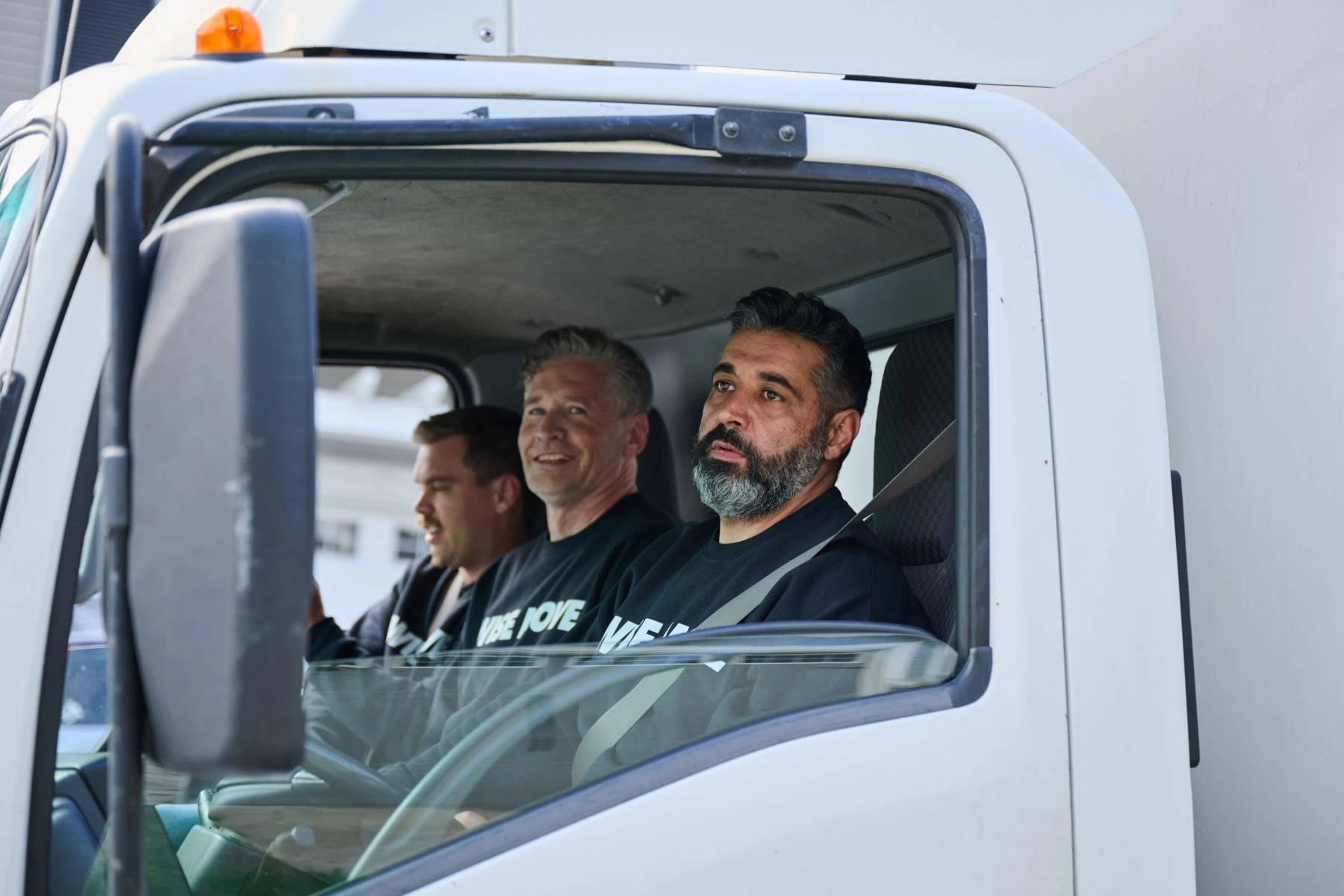
Whether you’re moving across the street or across town, the right moving company makes all the difference. If your situation is more complex, with multiple drop-off stops, careful handling, or extra time, book trusted movers who understand your unique needs and help the process go smoothly from start to finish.
What do our customers say?


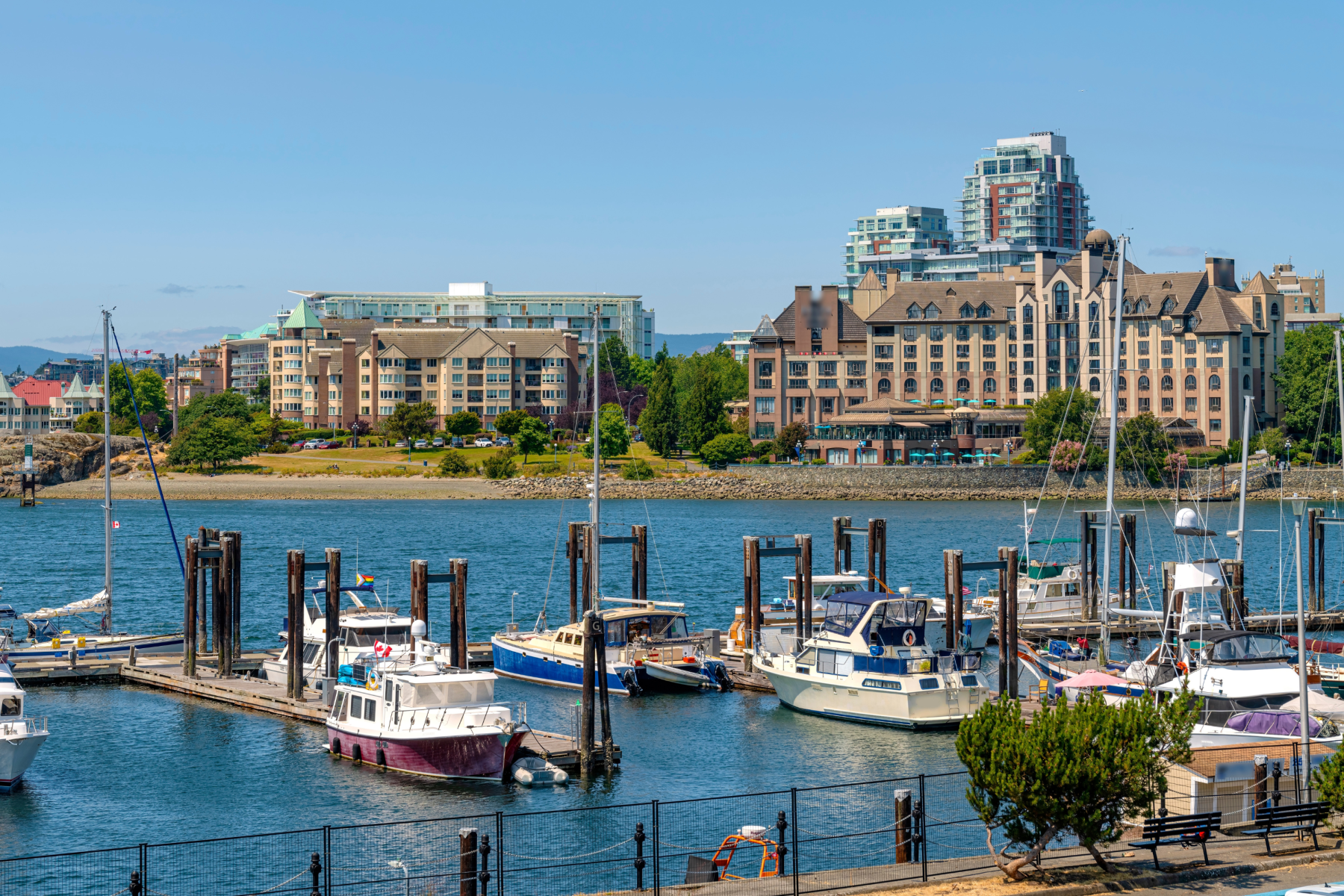
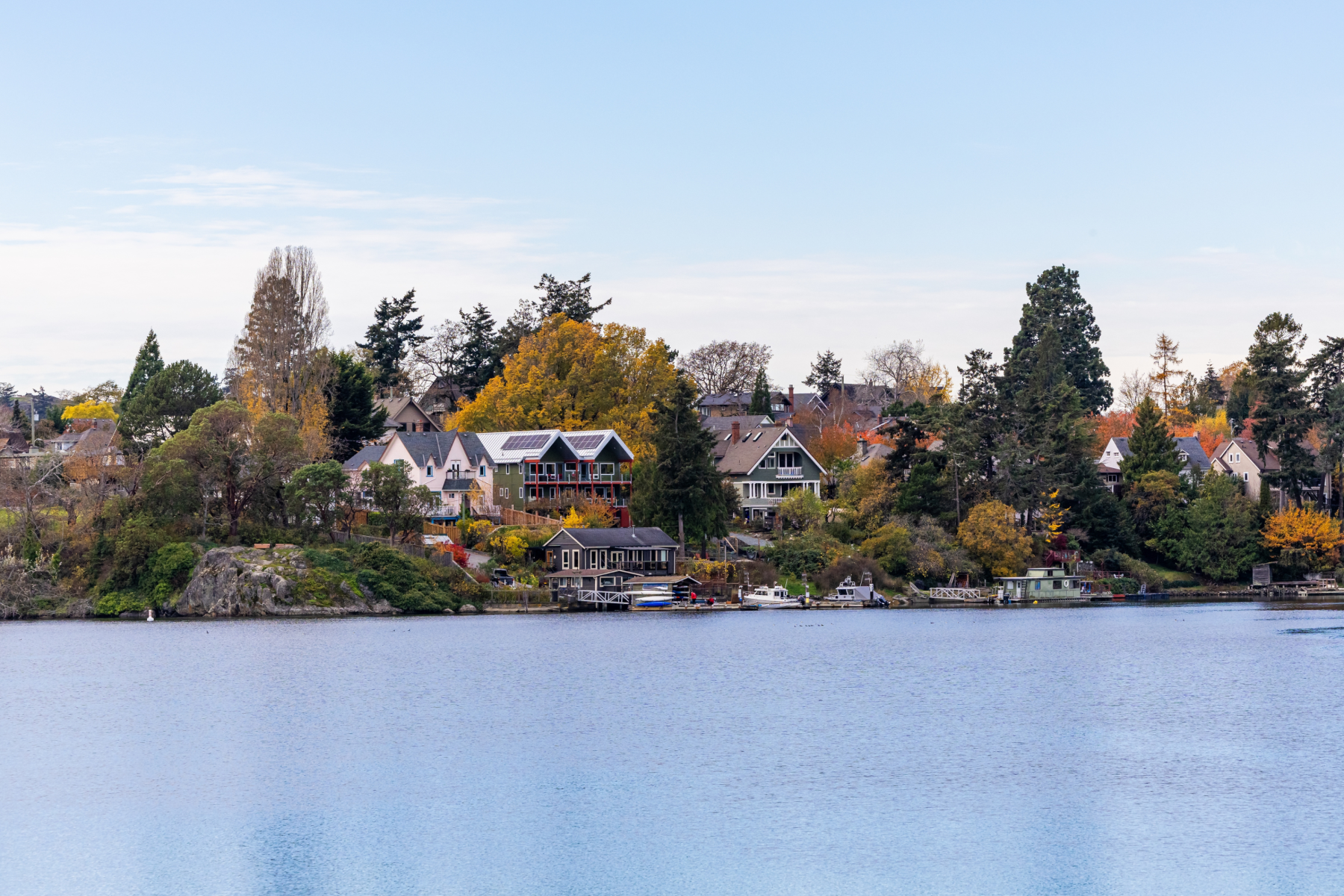
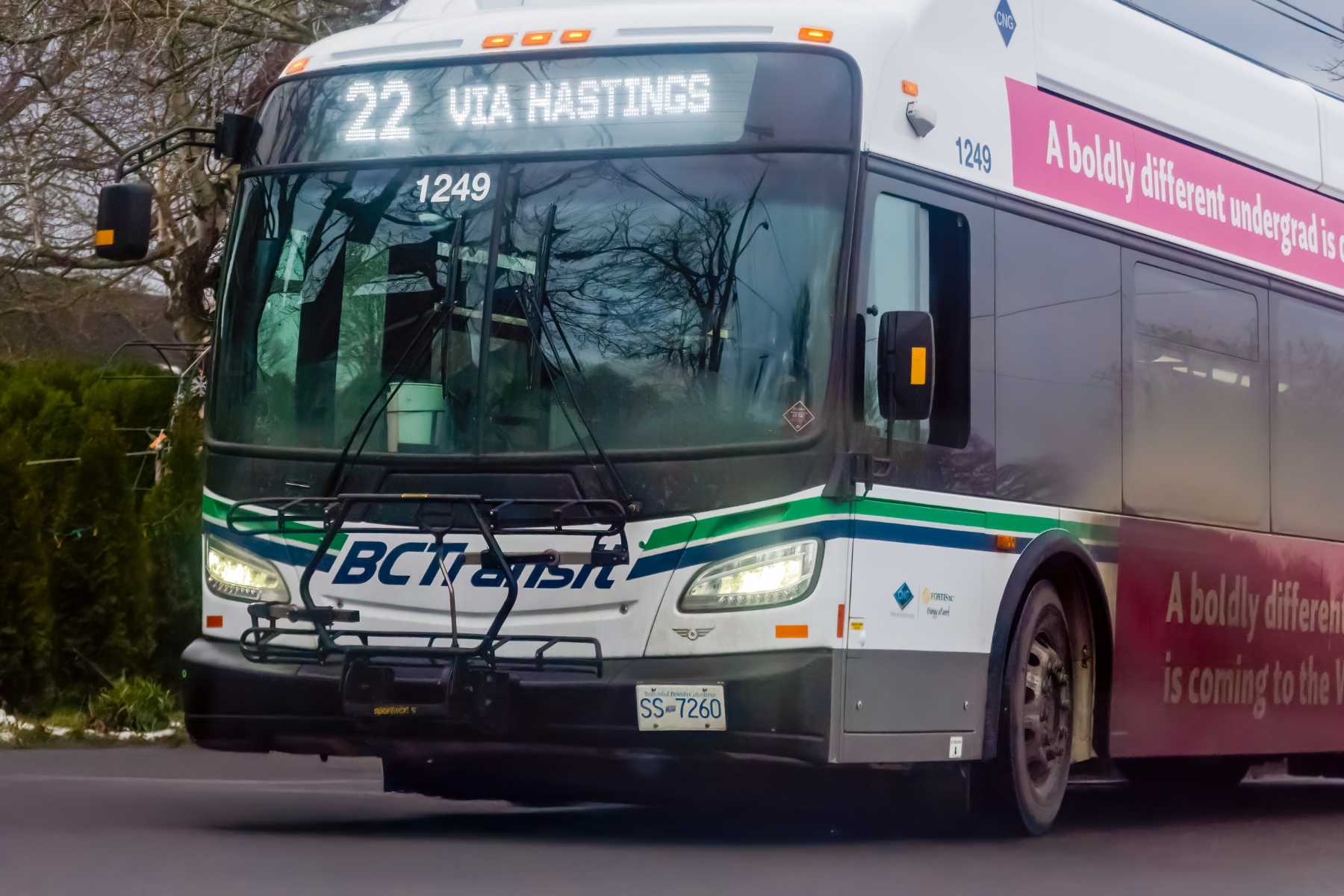

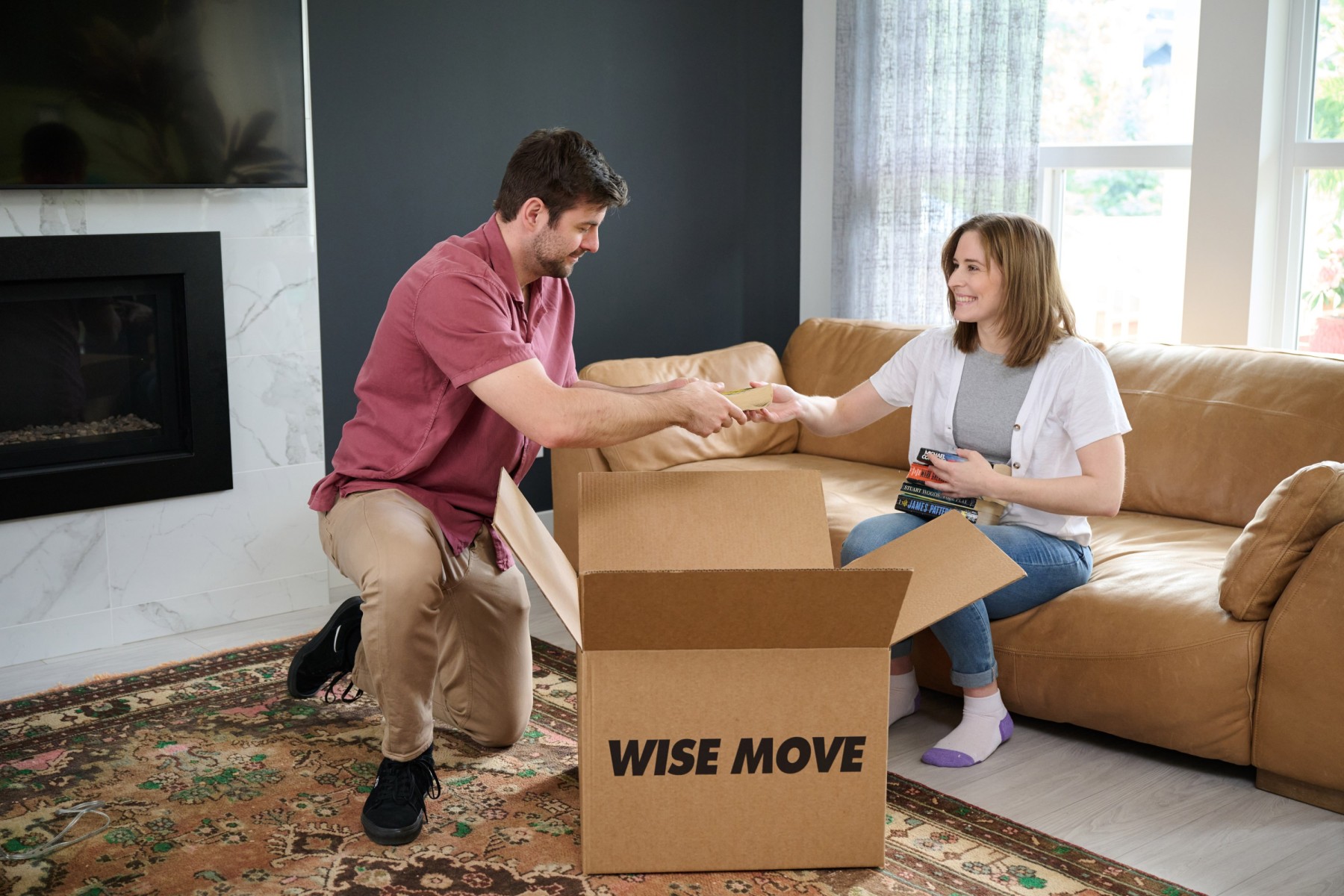
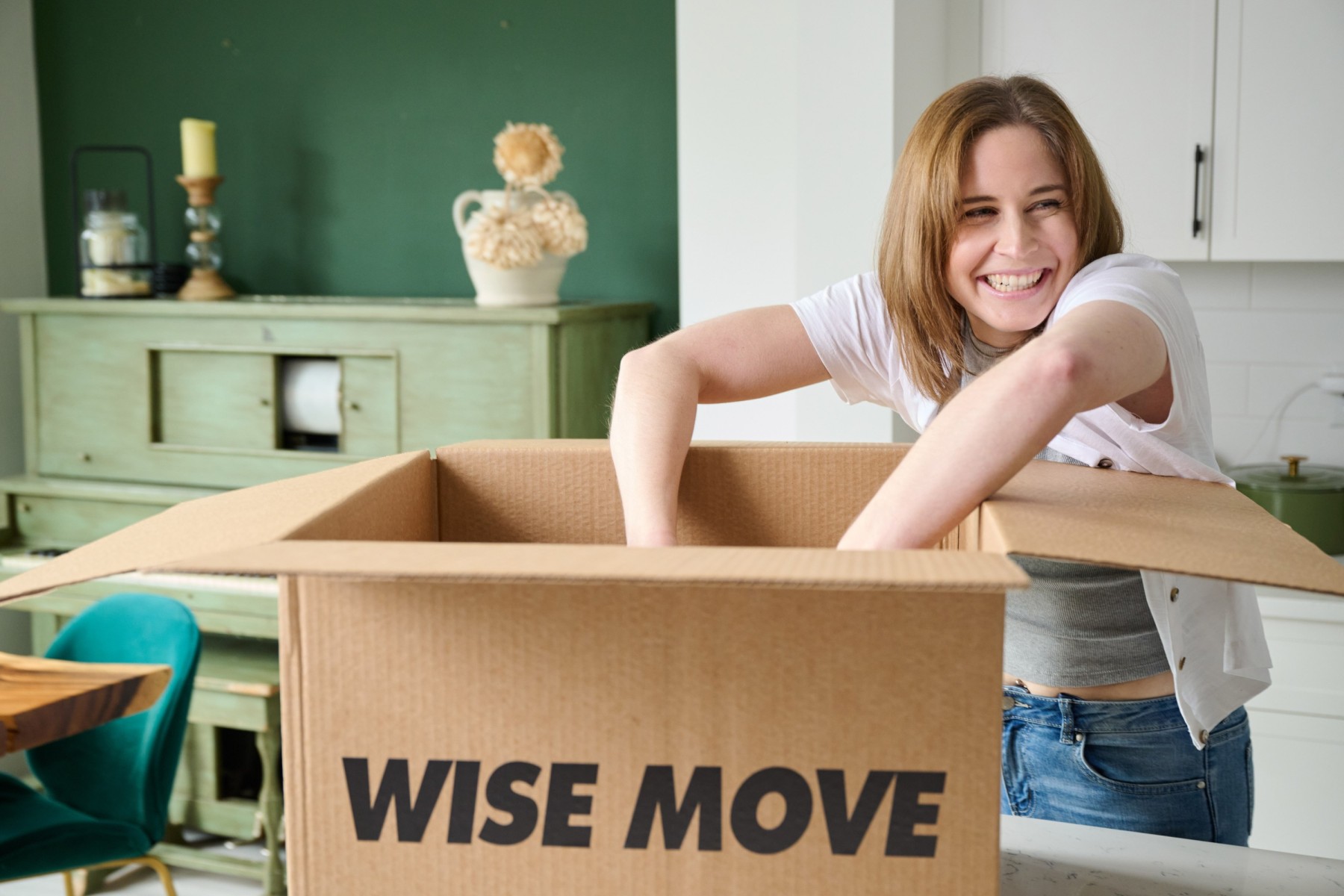

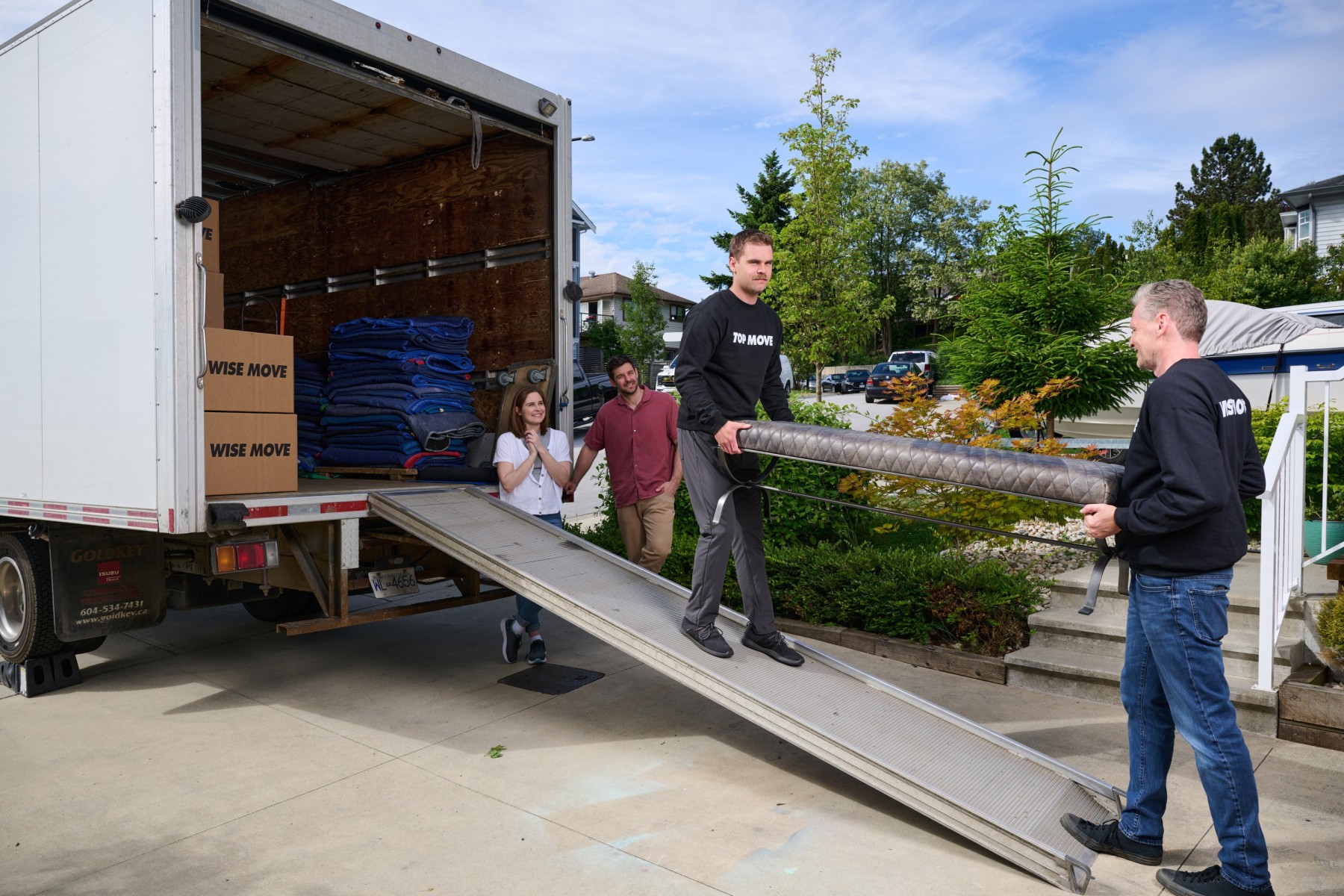
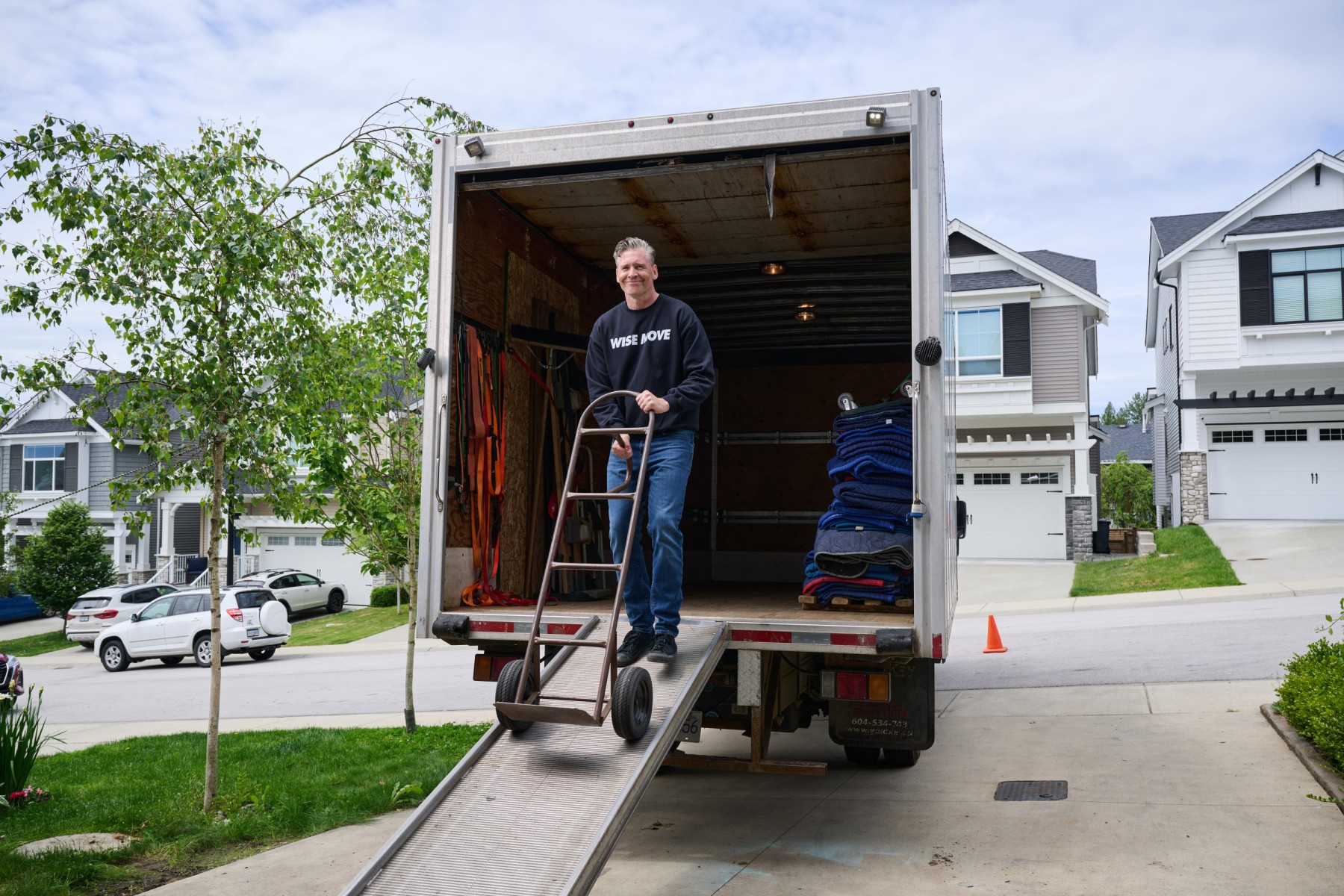

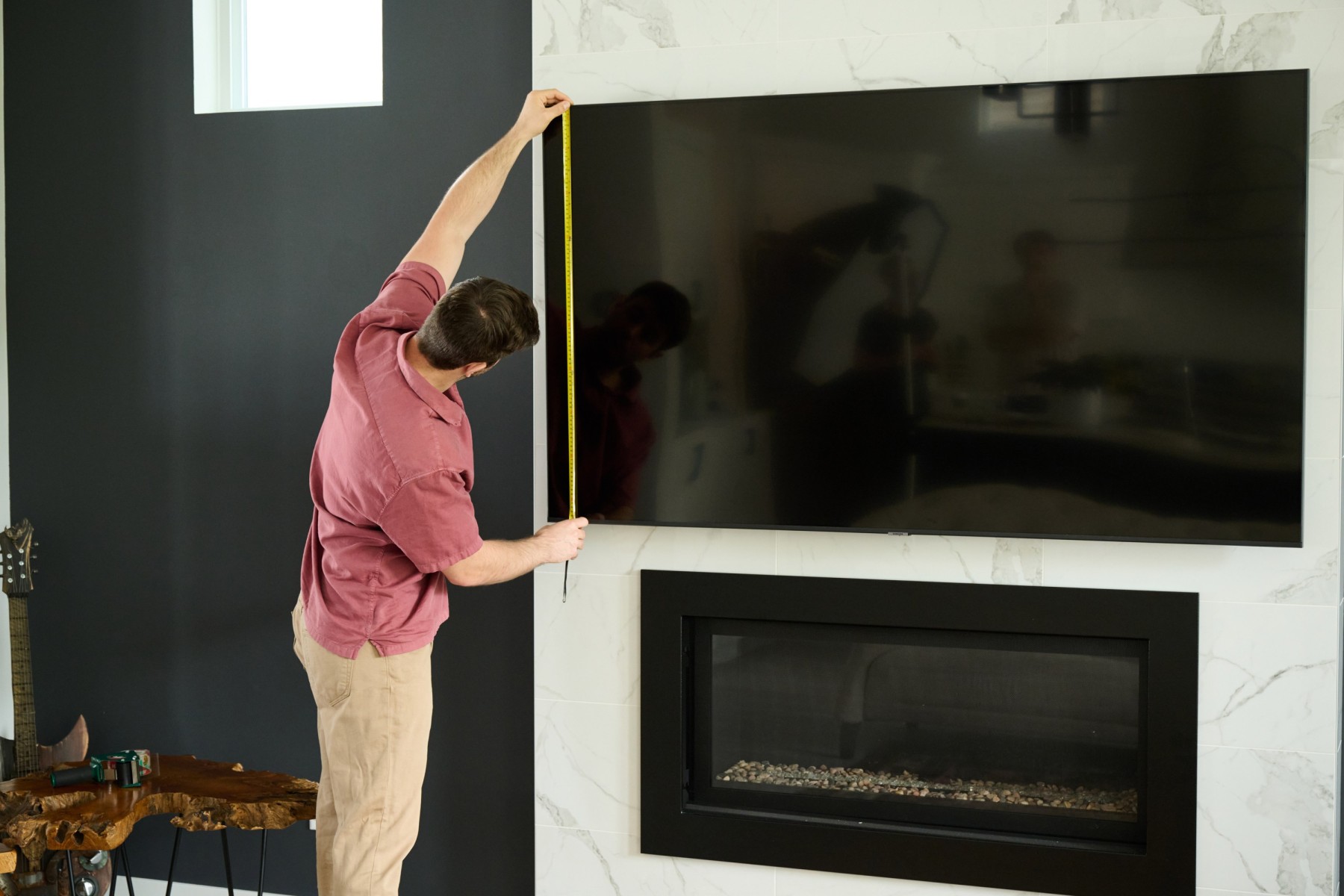

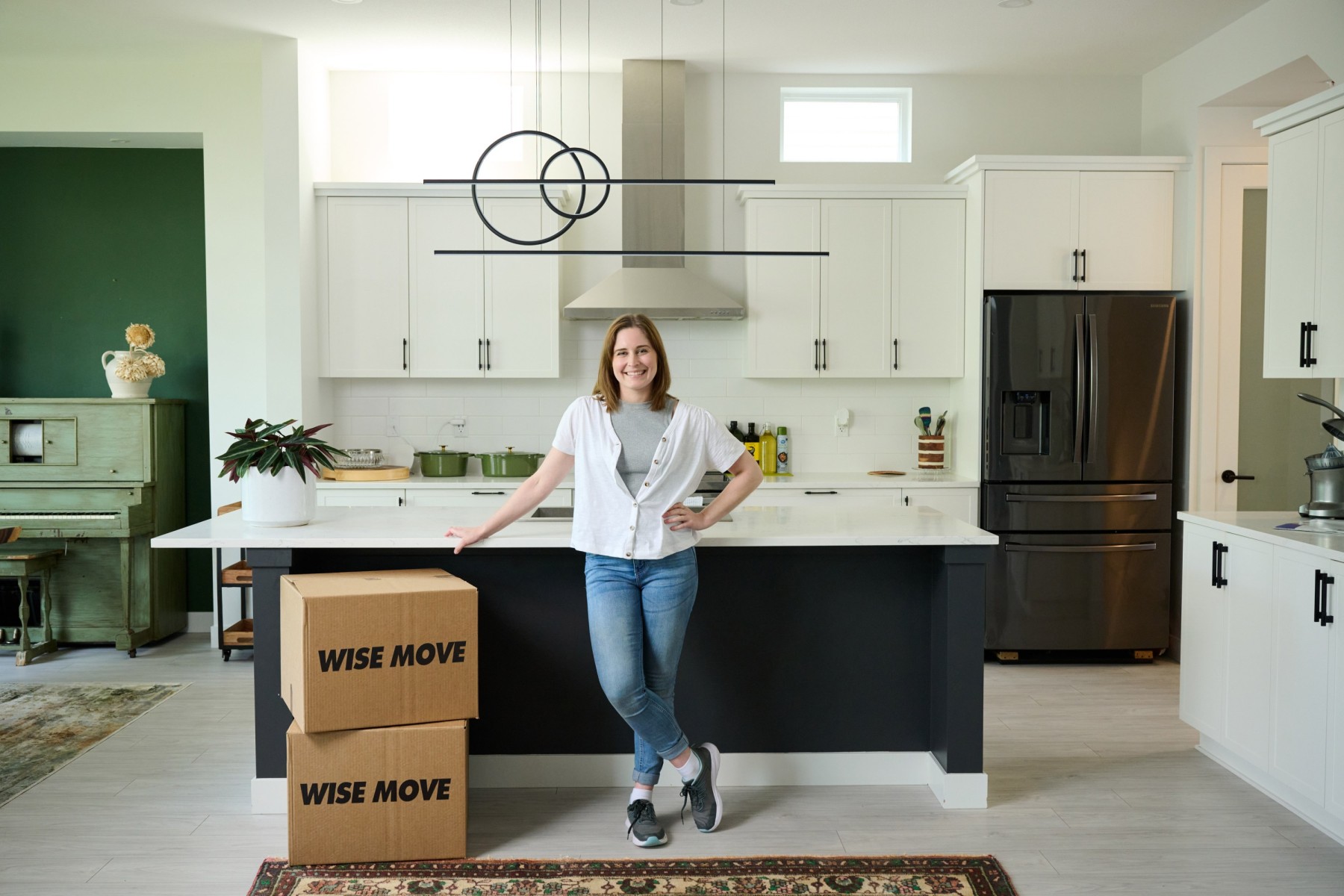
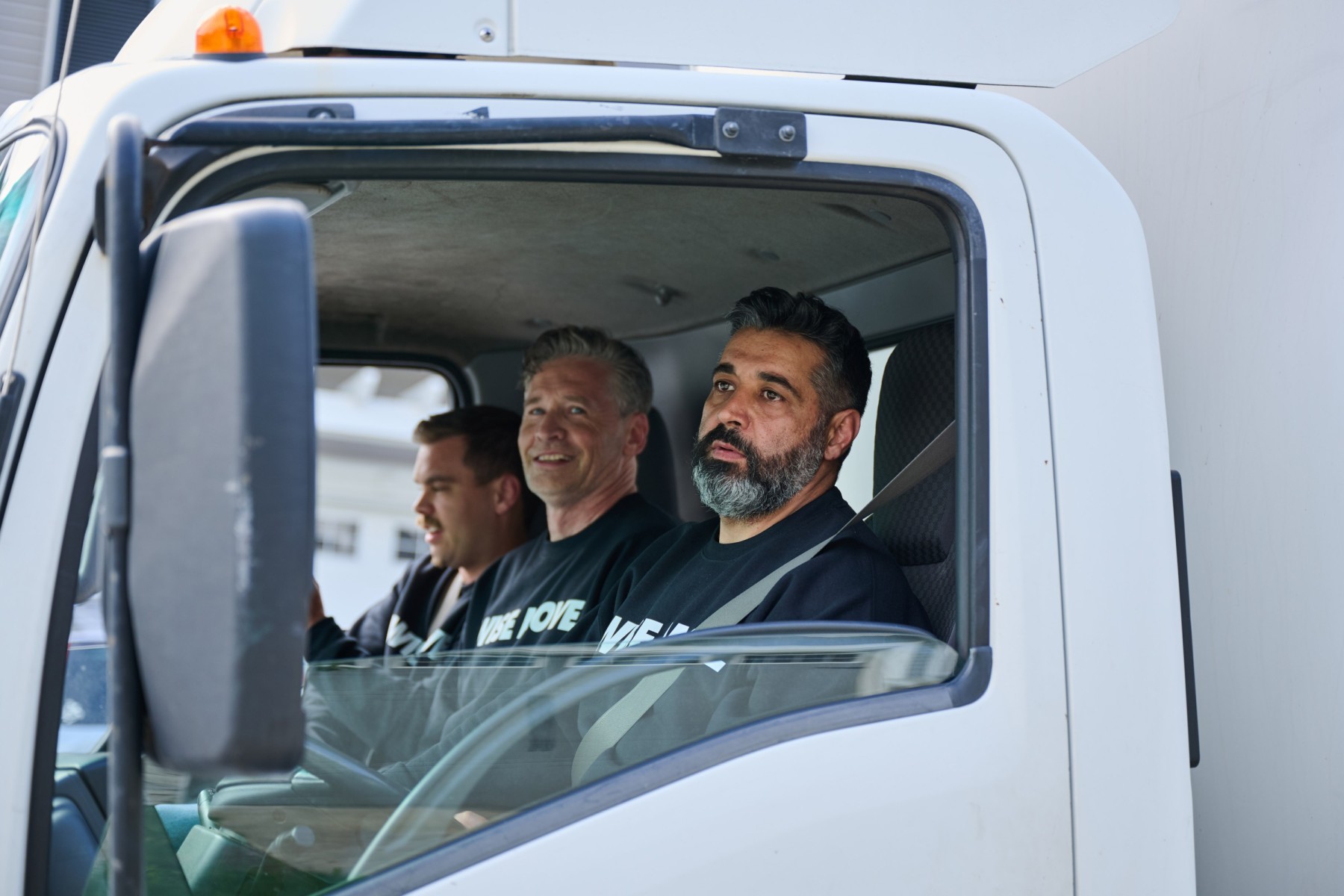

![The Cost of Living in Victoria [2025] The Cost of Living in Victoria [2025]](https://cdn.wisemove.ca/image/blog/012c60baf3a9dd52b2112857fe508e4c.jpeg)
![The Cost of Living in Victoria [2025] The Cost of Living in Victoria [2025]](https://cdn.wisemove.ca/image/blog/6d9677f2a86a234e64f7f5275d9bff62.jpeg)
![How much do you need to earn to live comfortably in Victoria? [2025] How much do you need to earn to live comfortably in Victoria? [2025]](https://cdn.wisemove.ca/image/blog/f0bdeb7f43a3340afba84793c4fddbac.jpeg)
